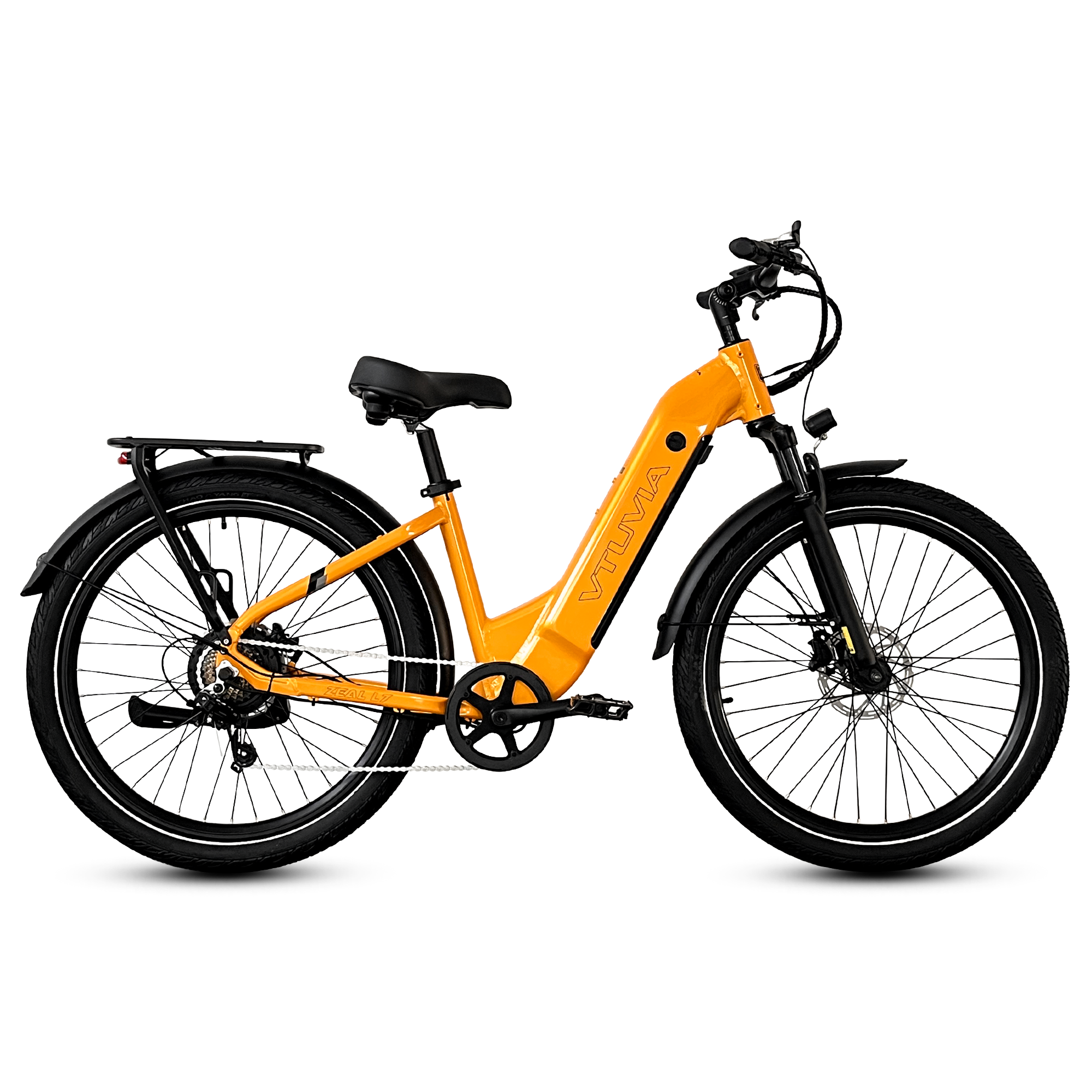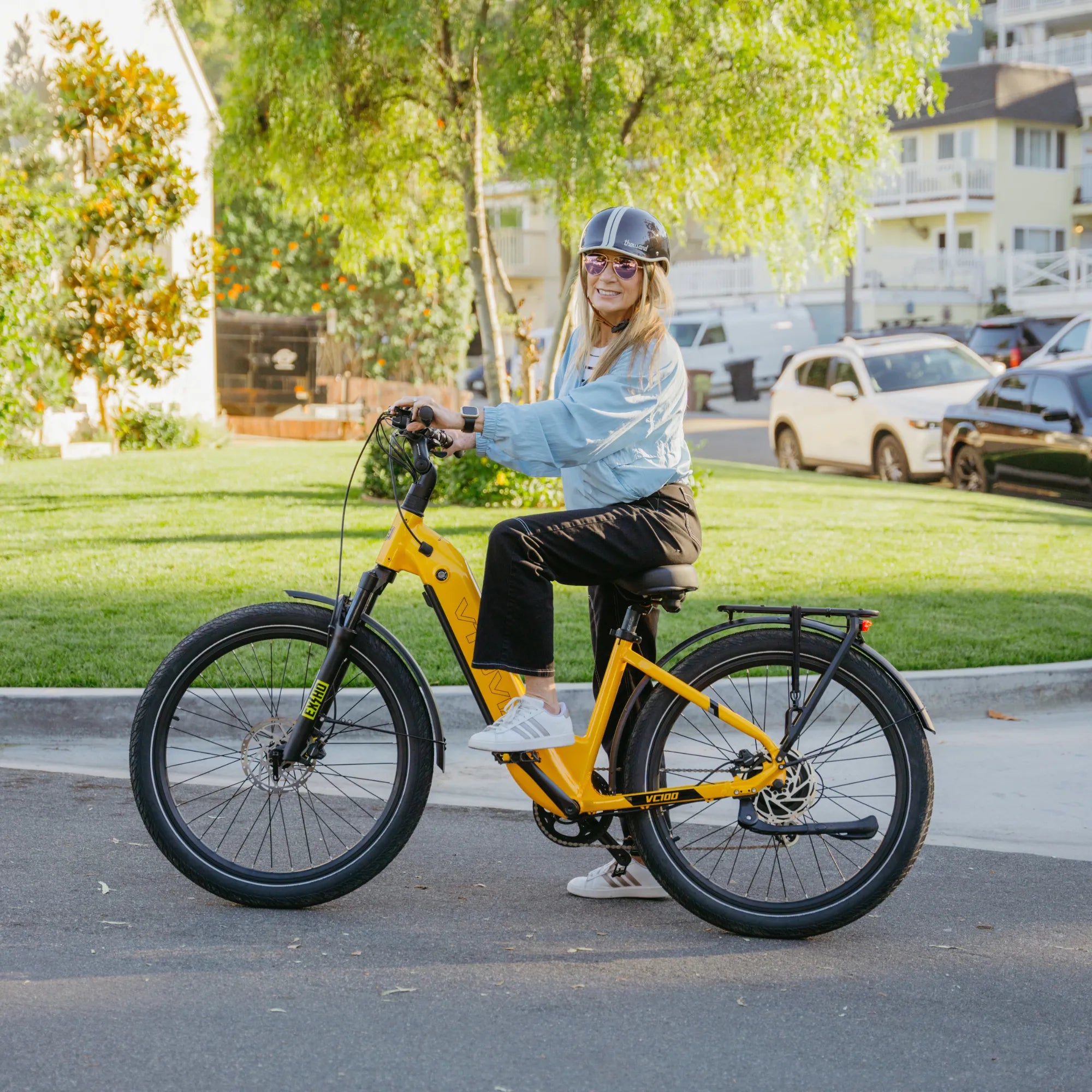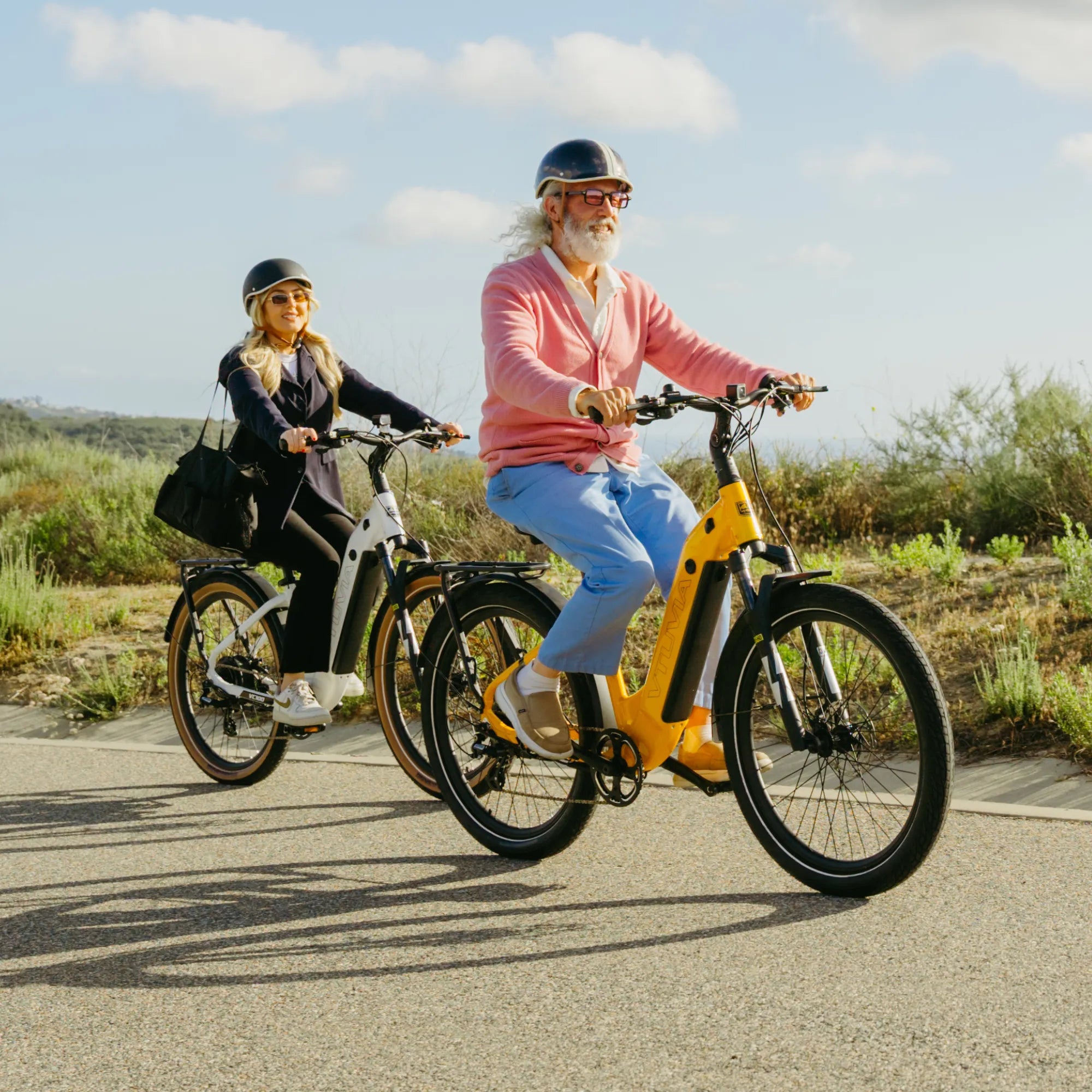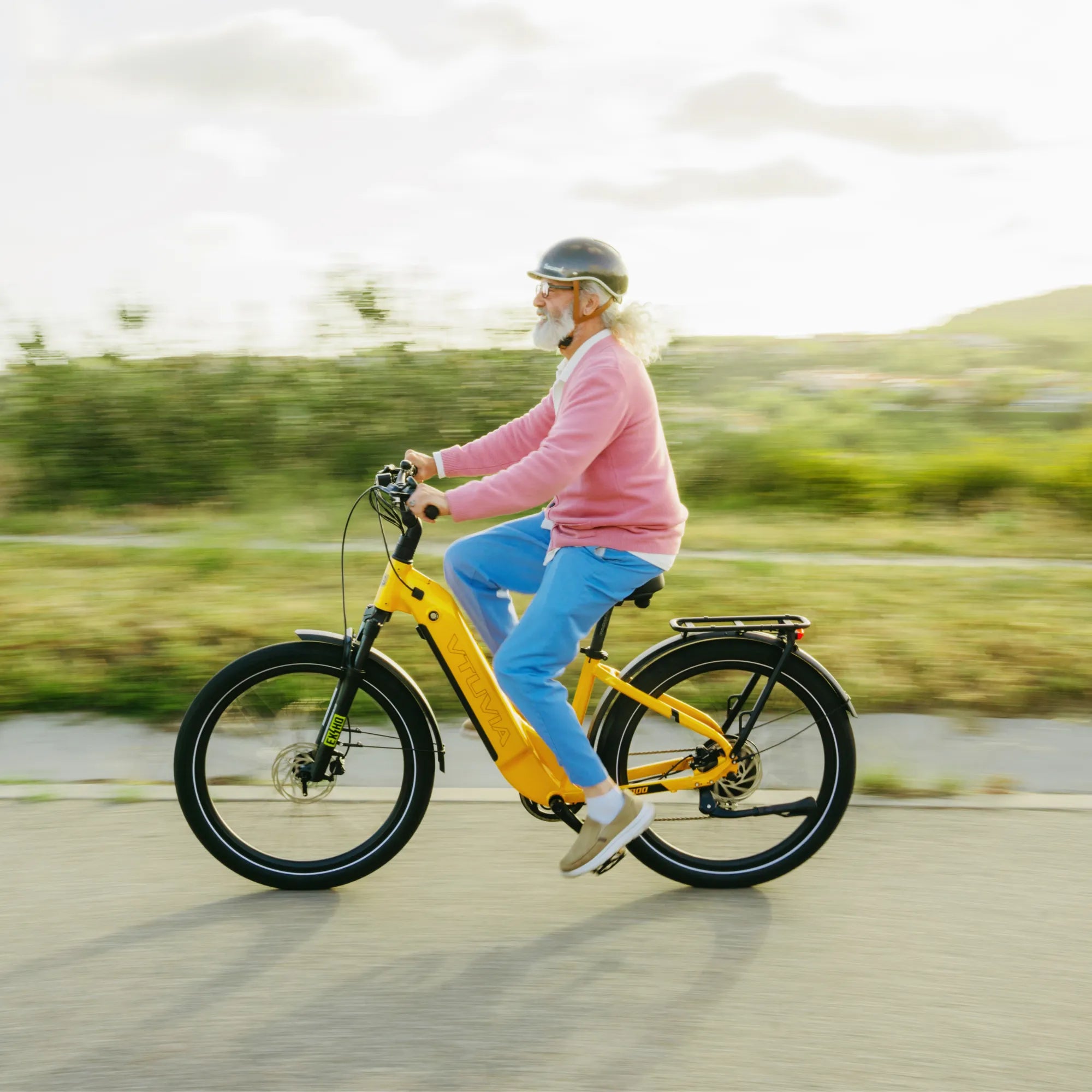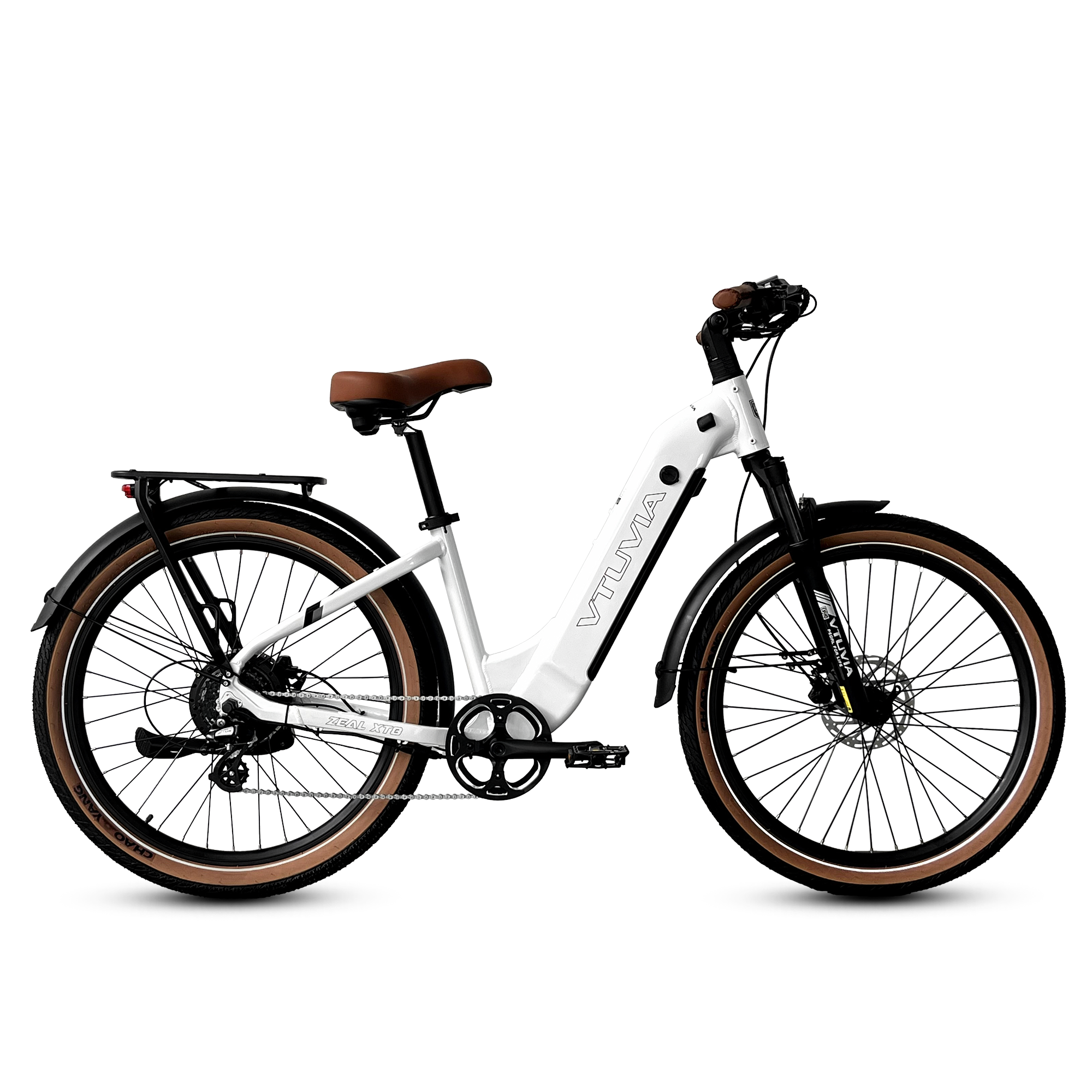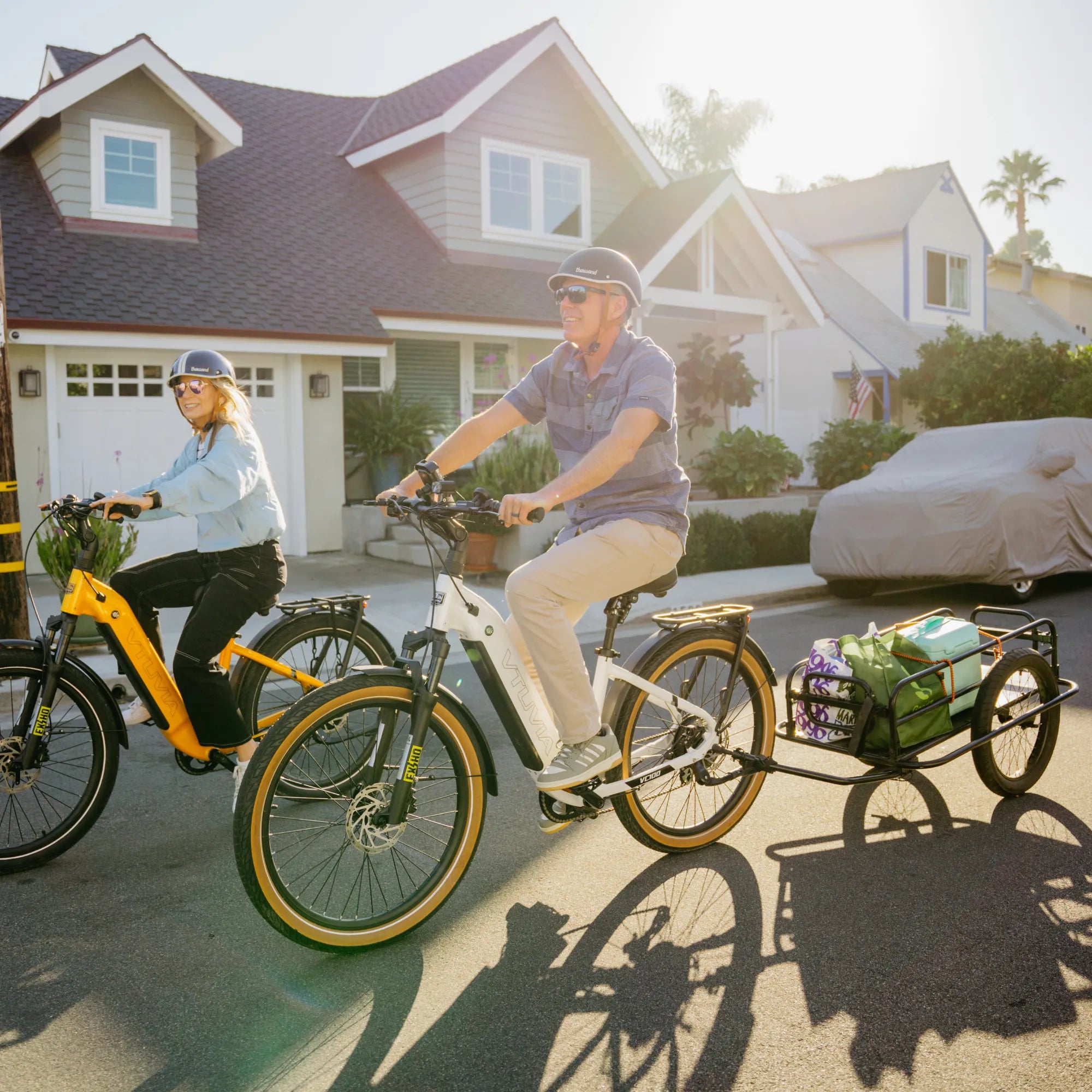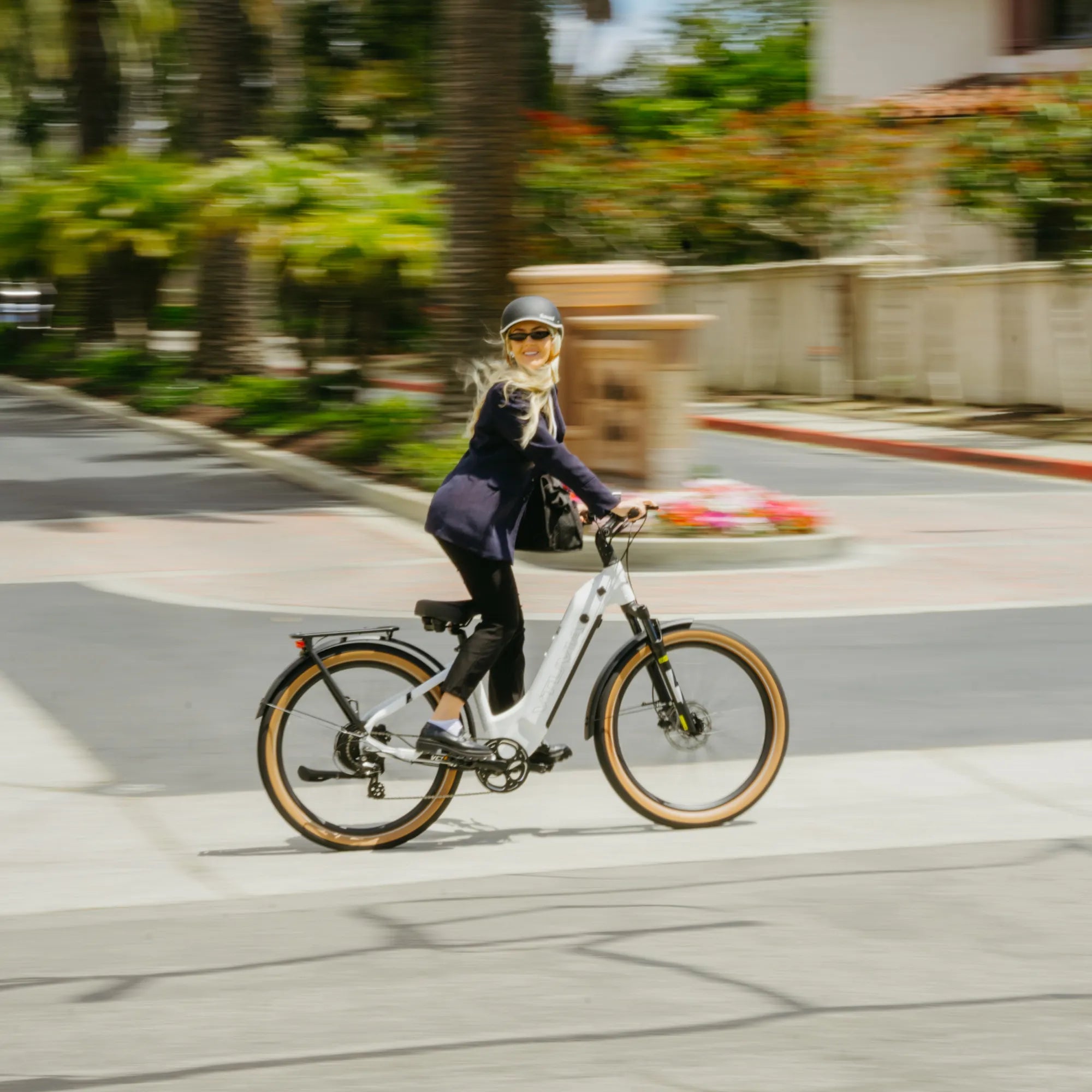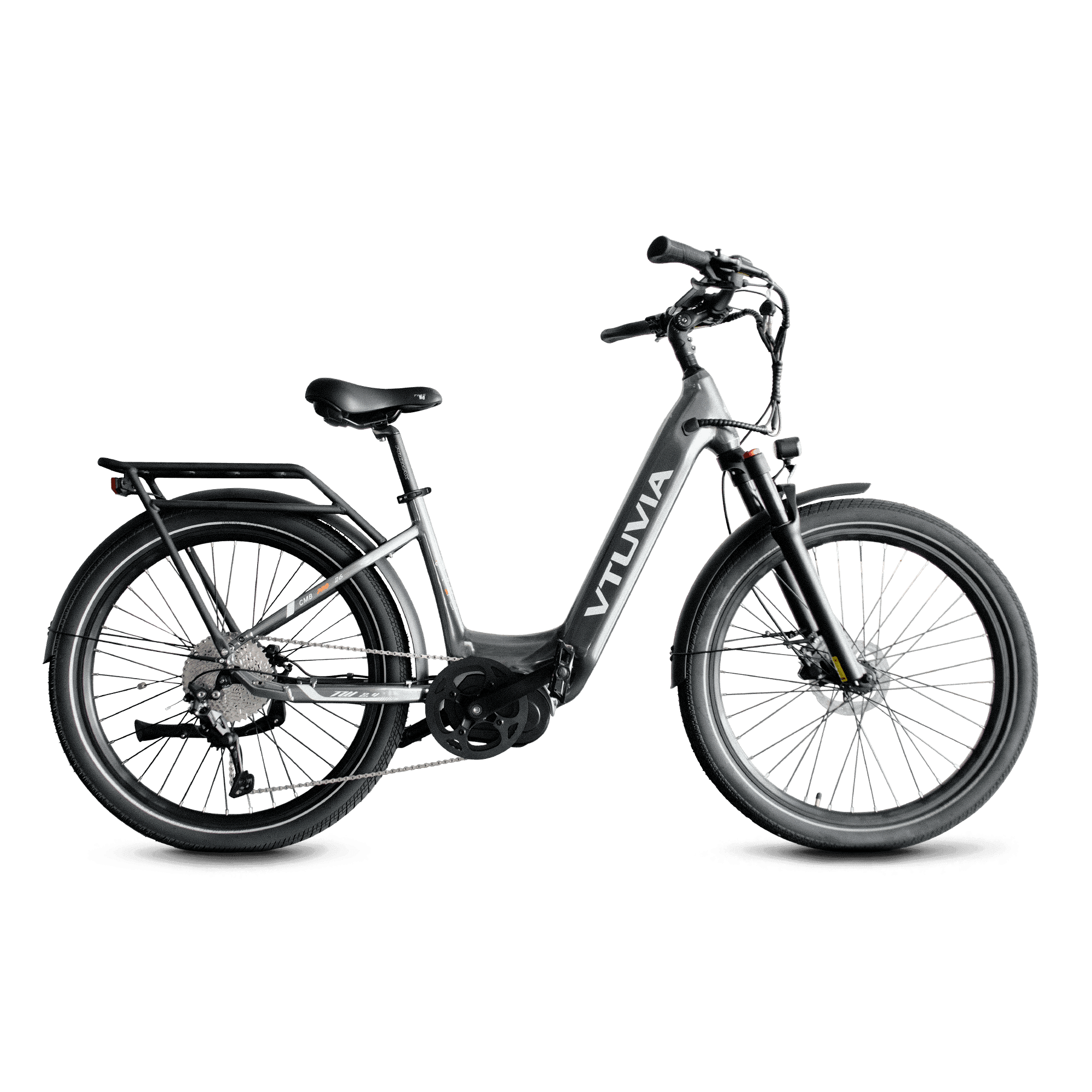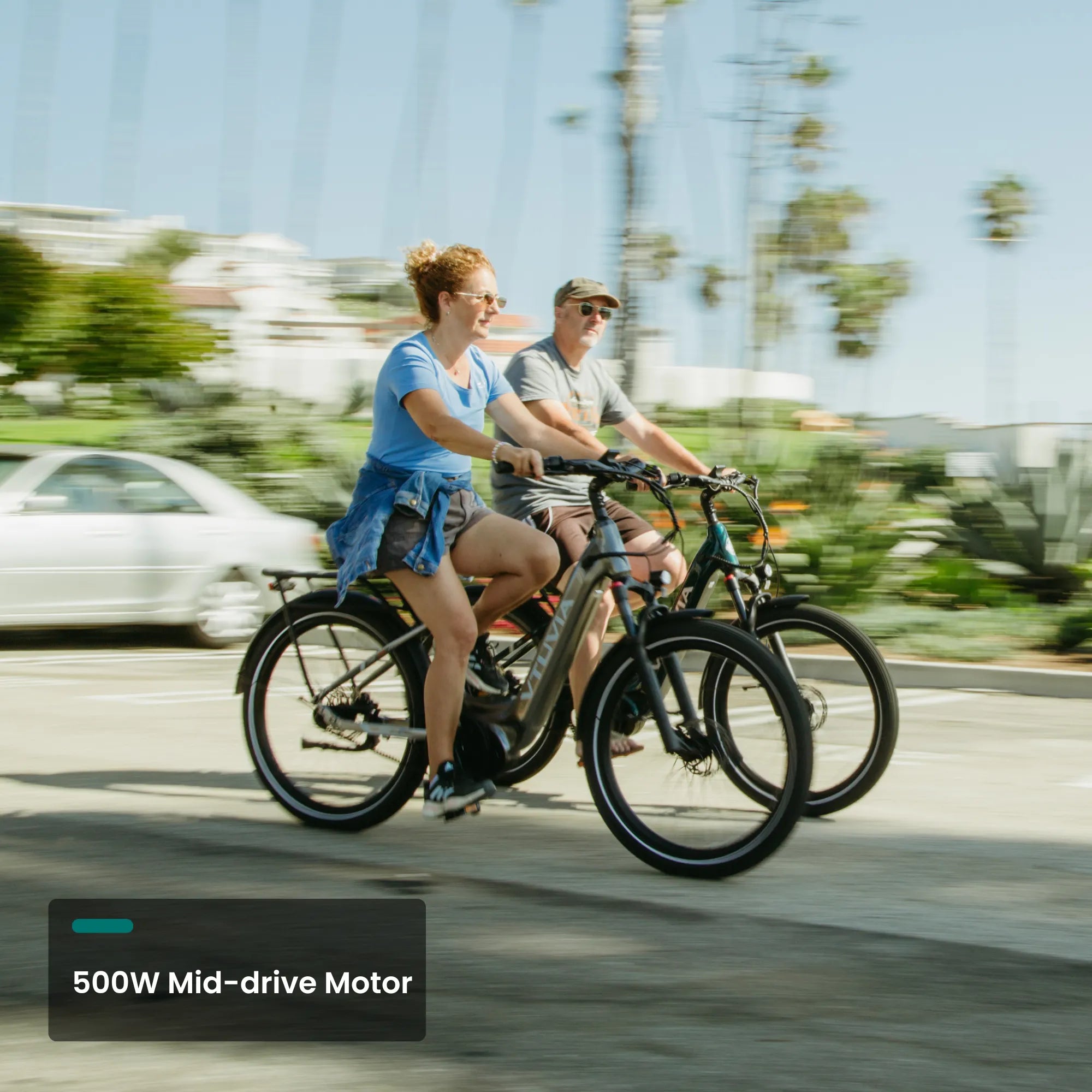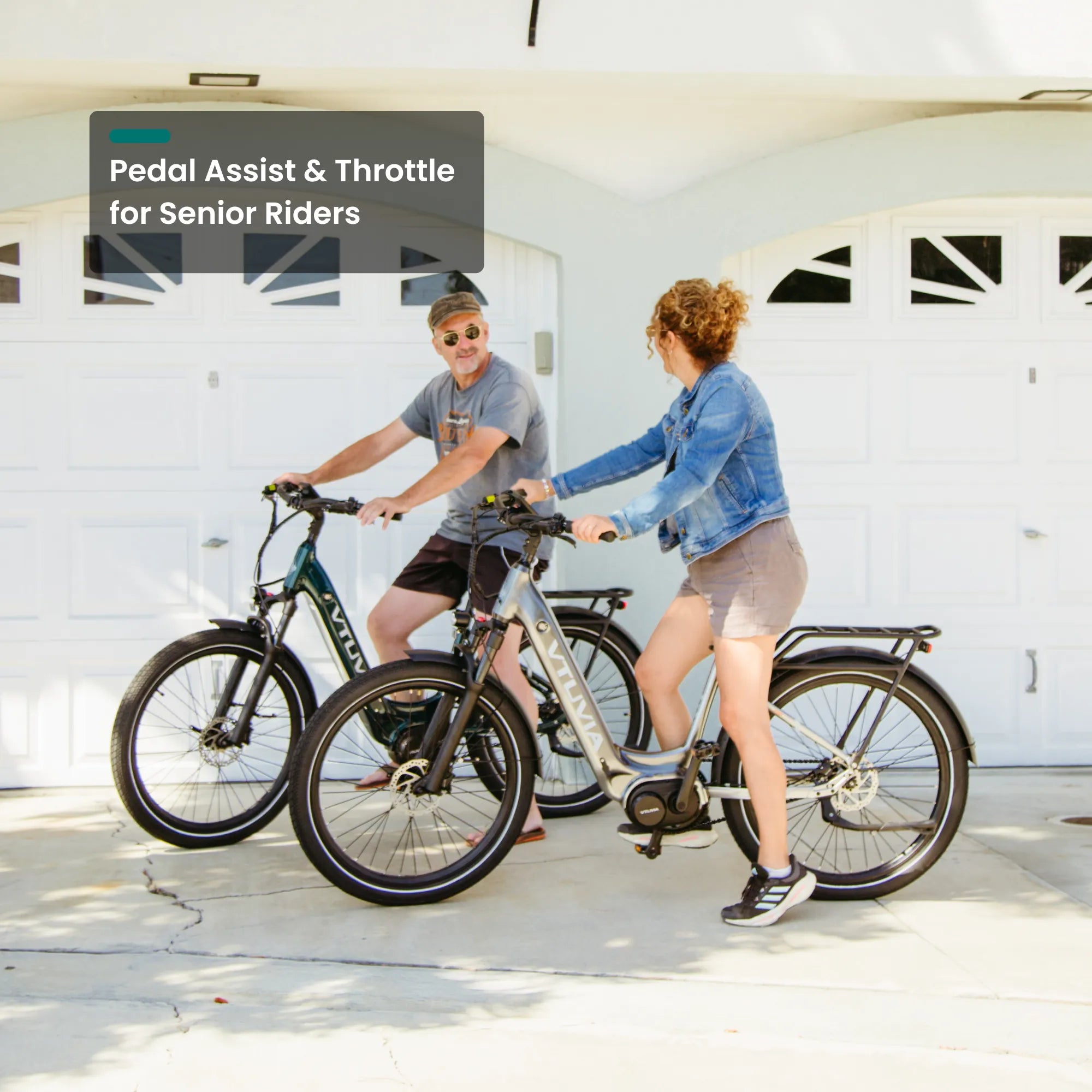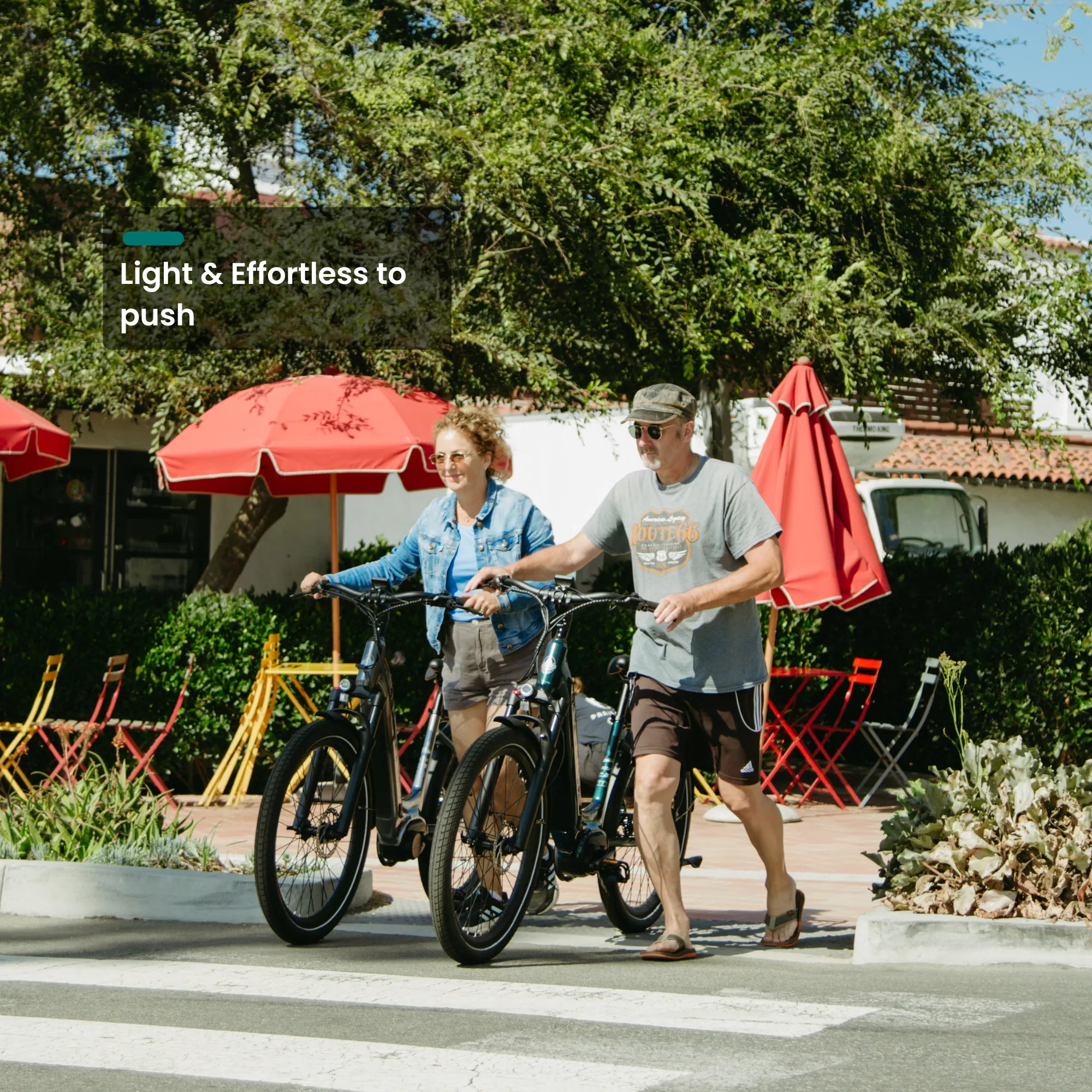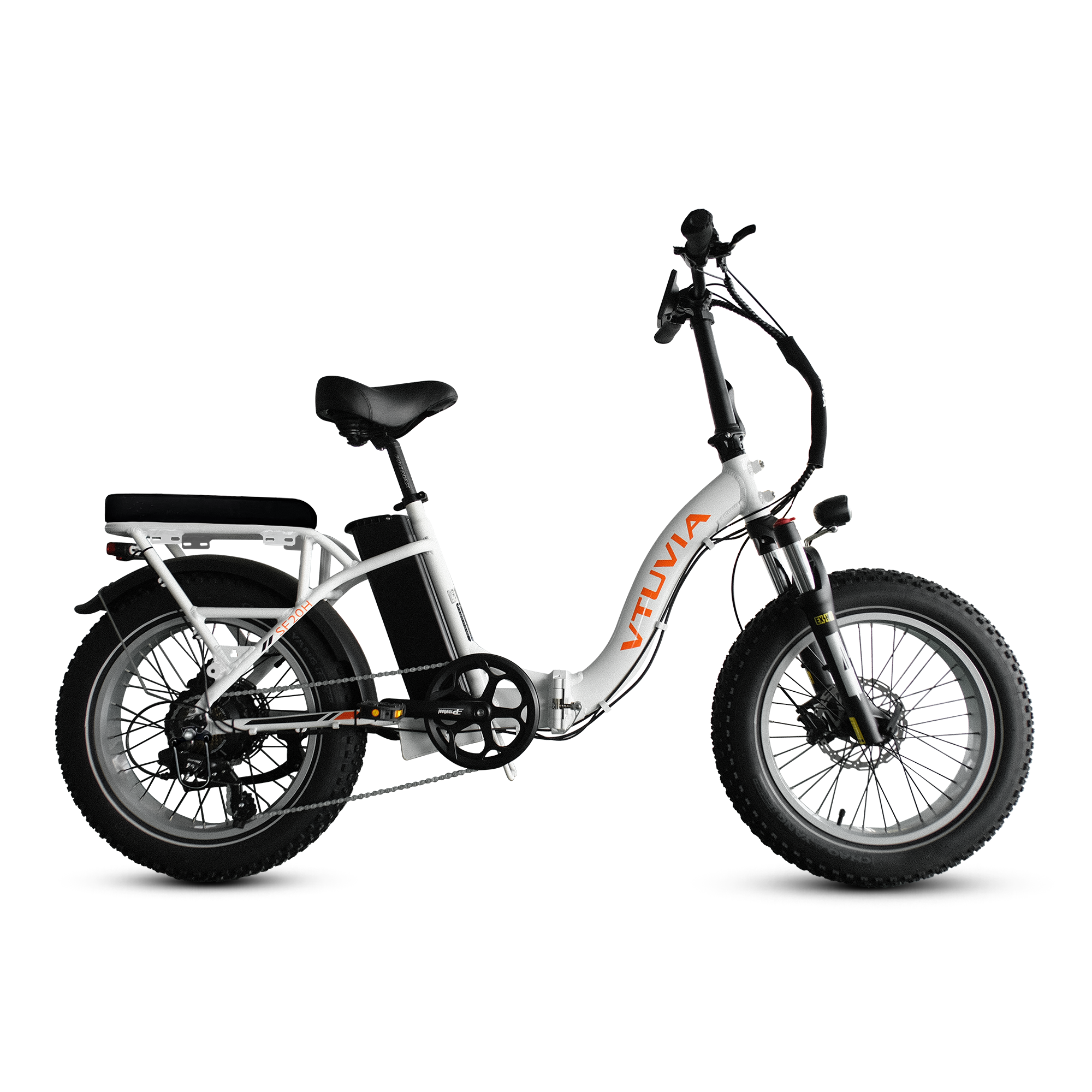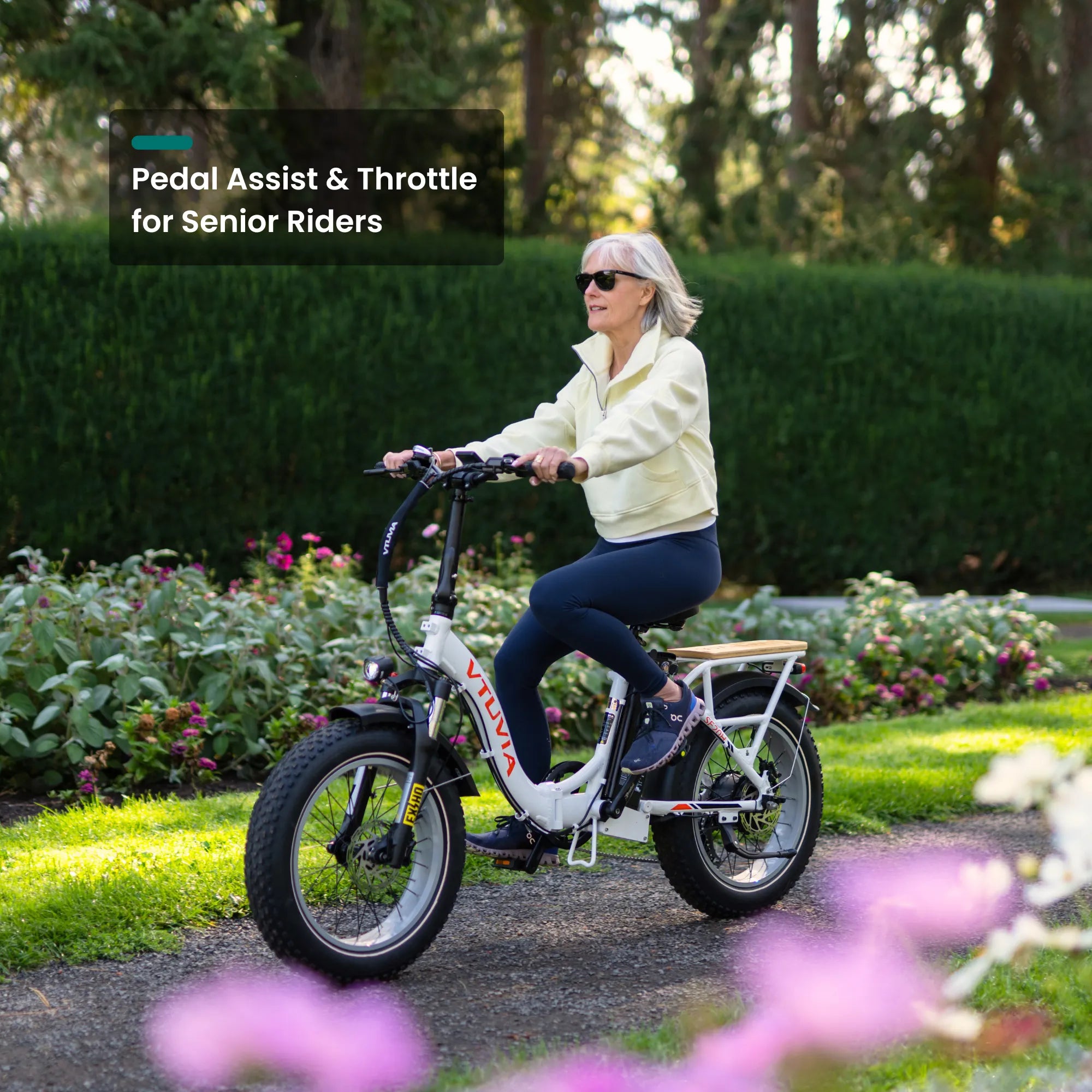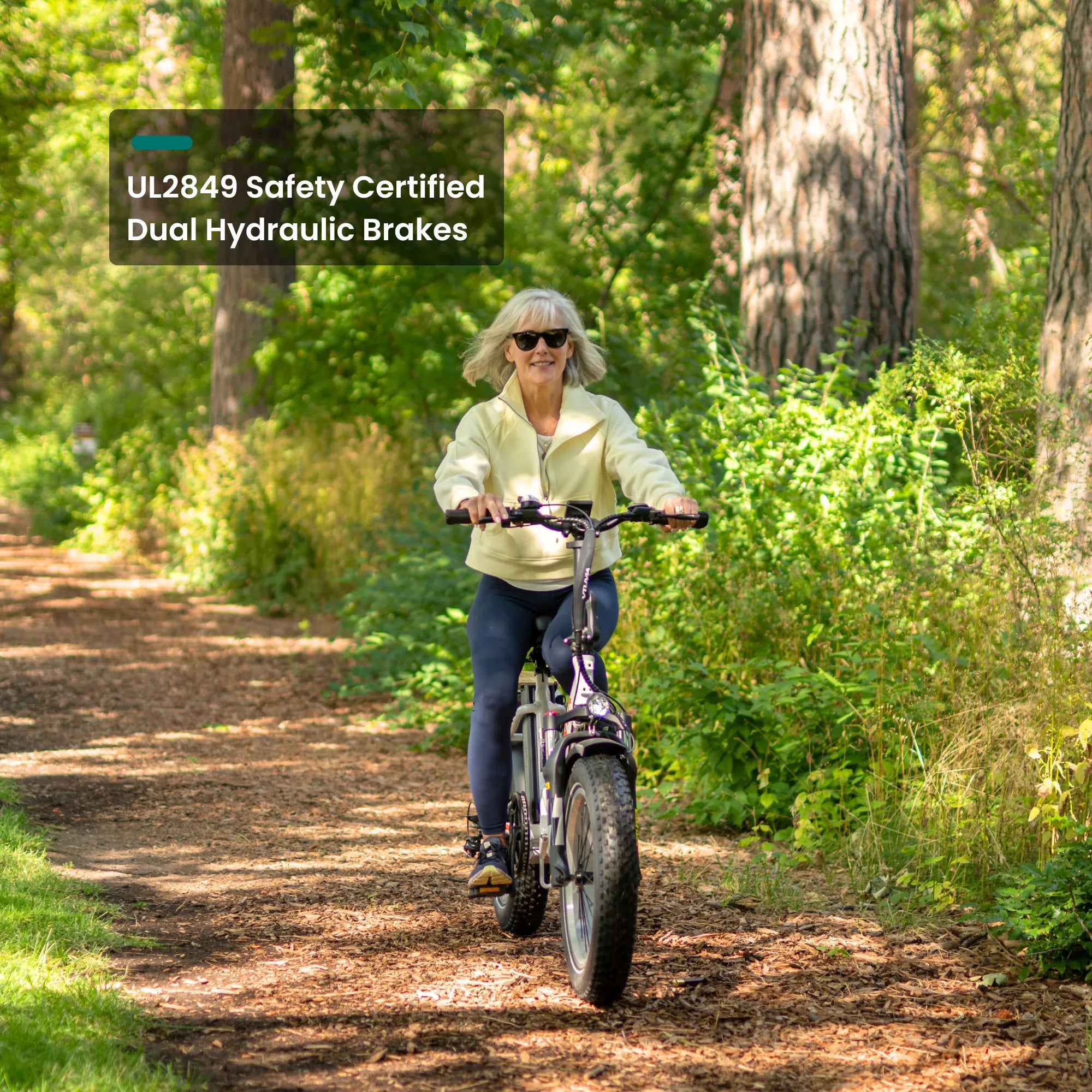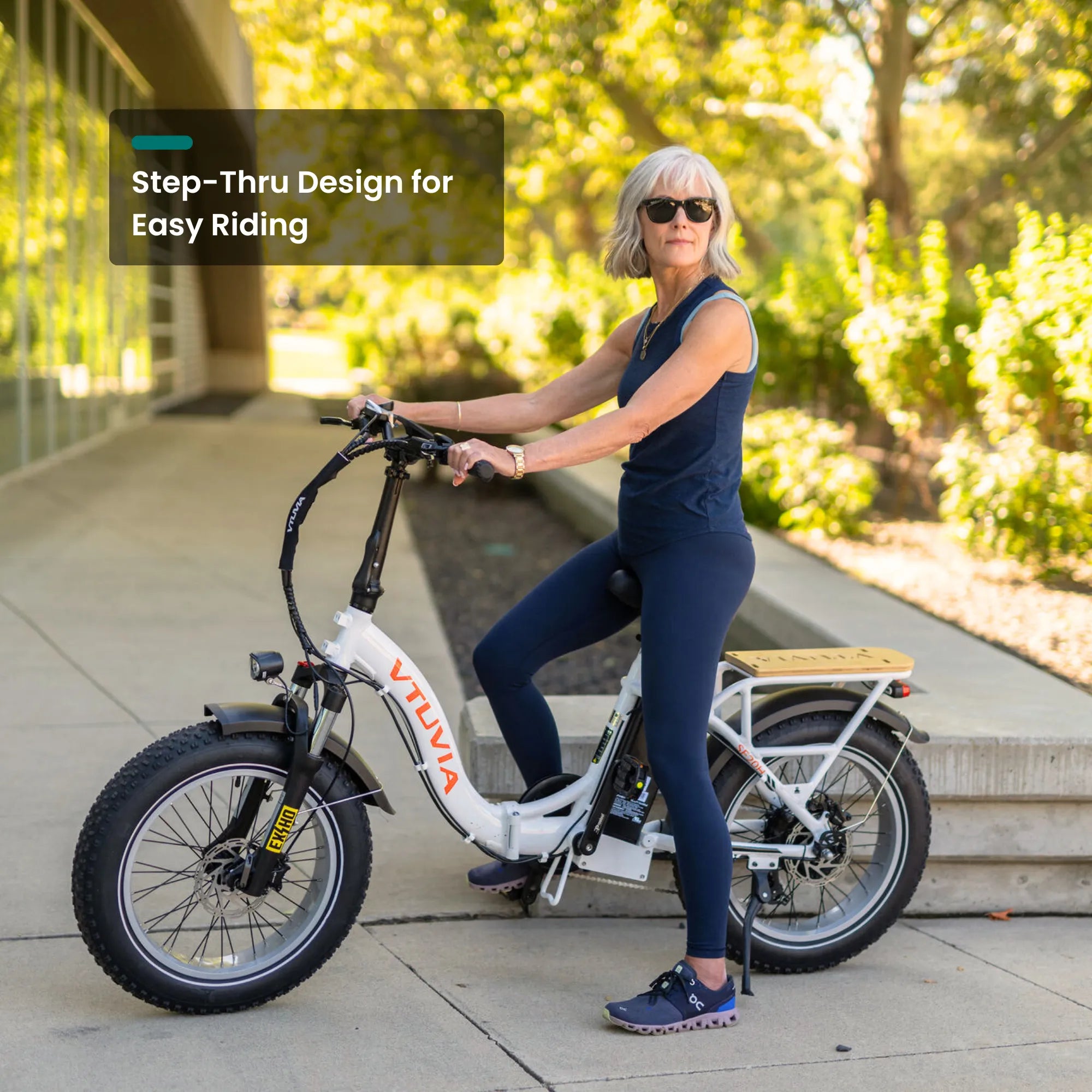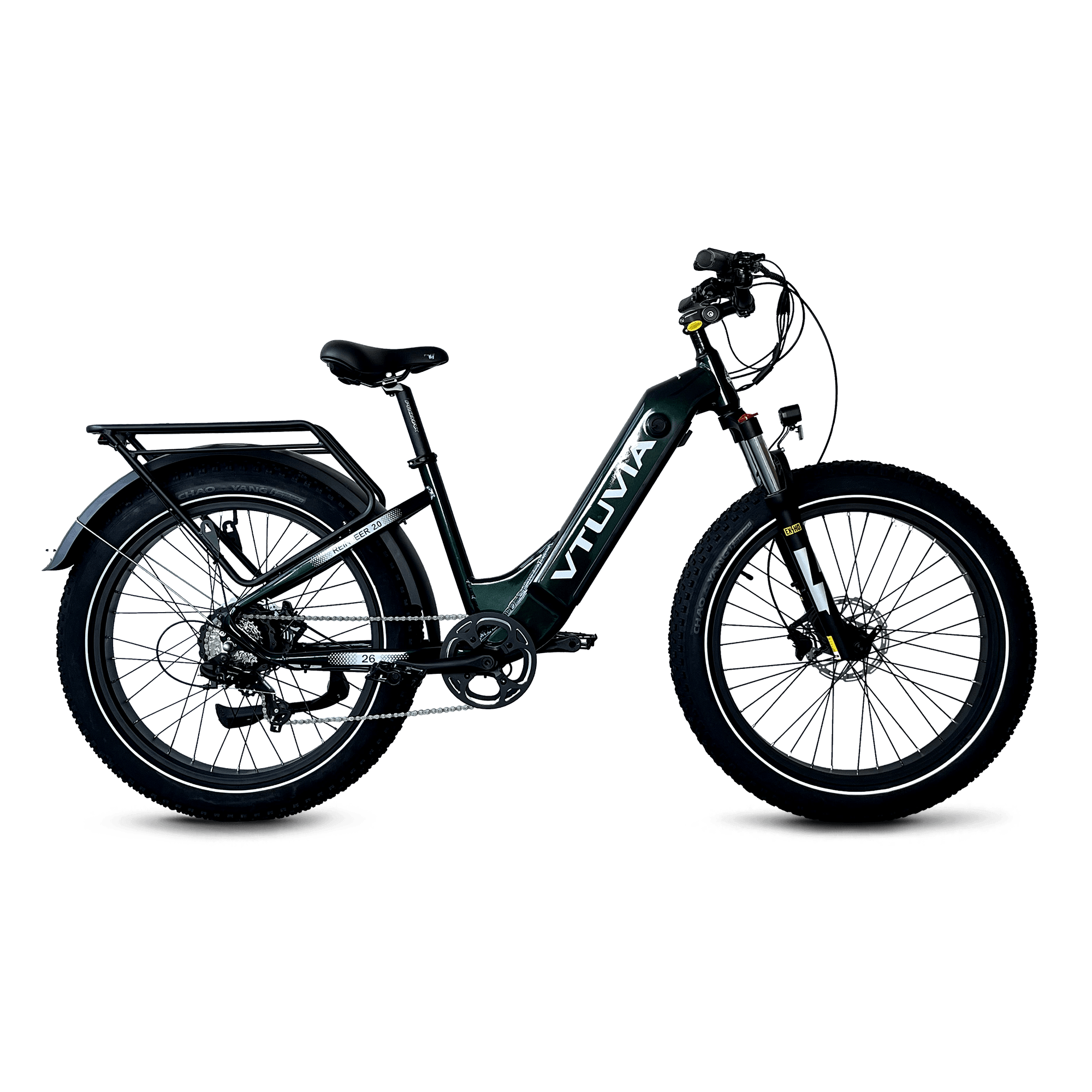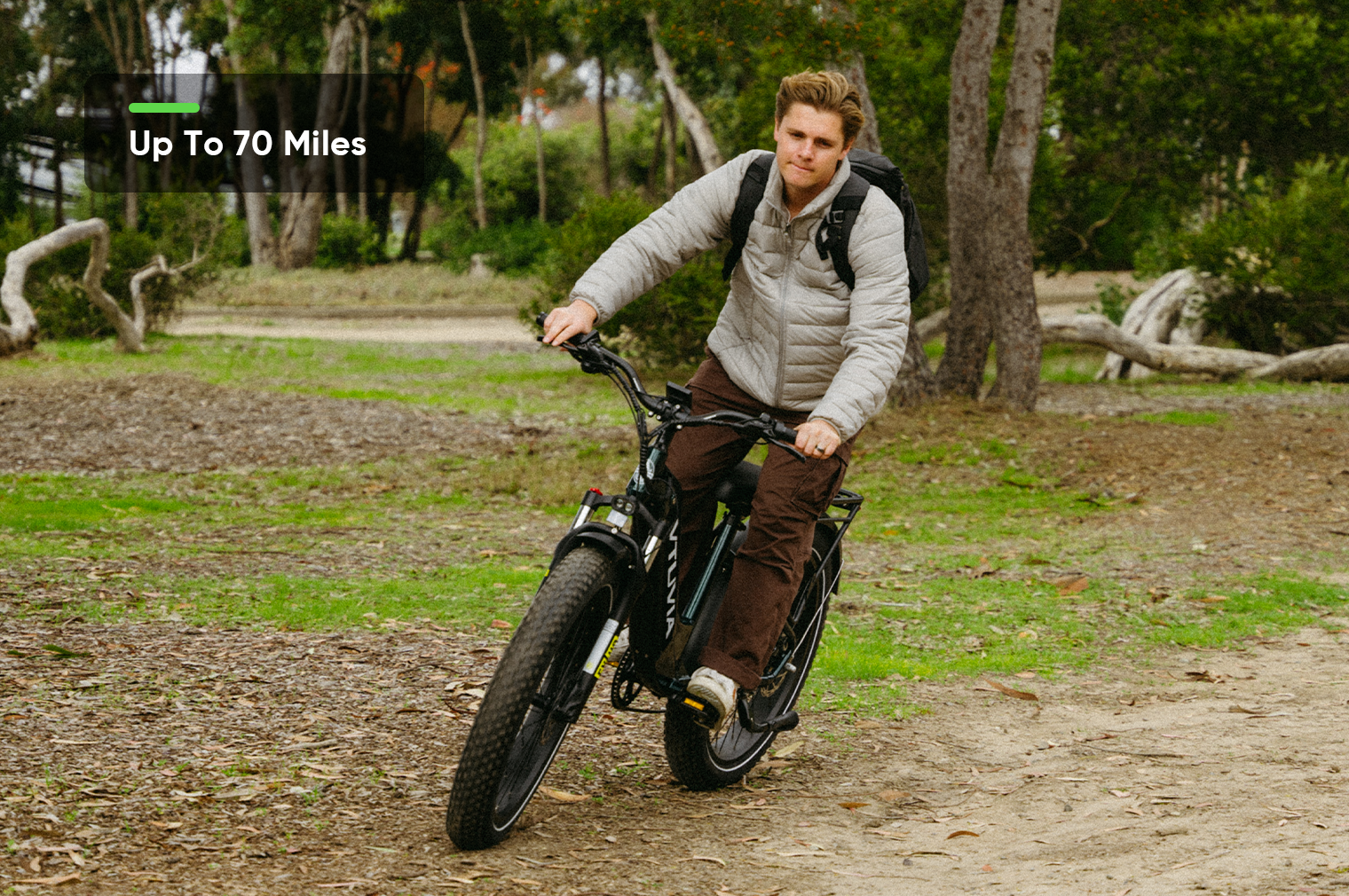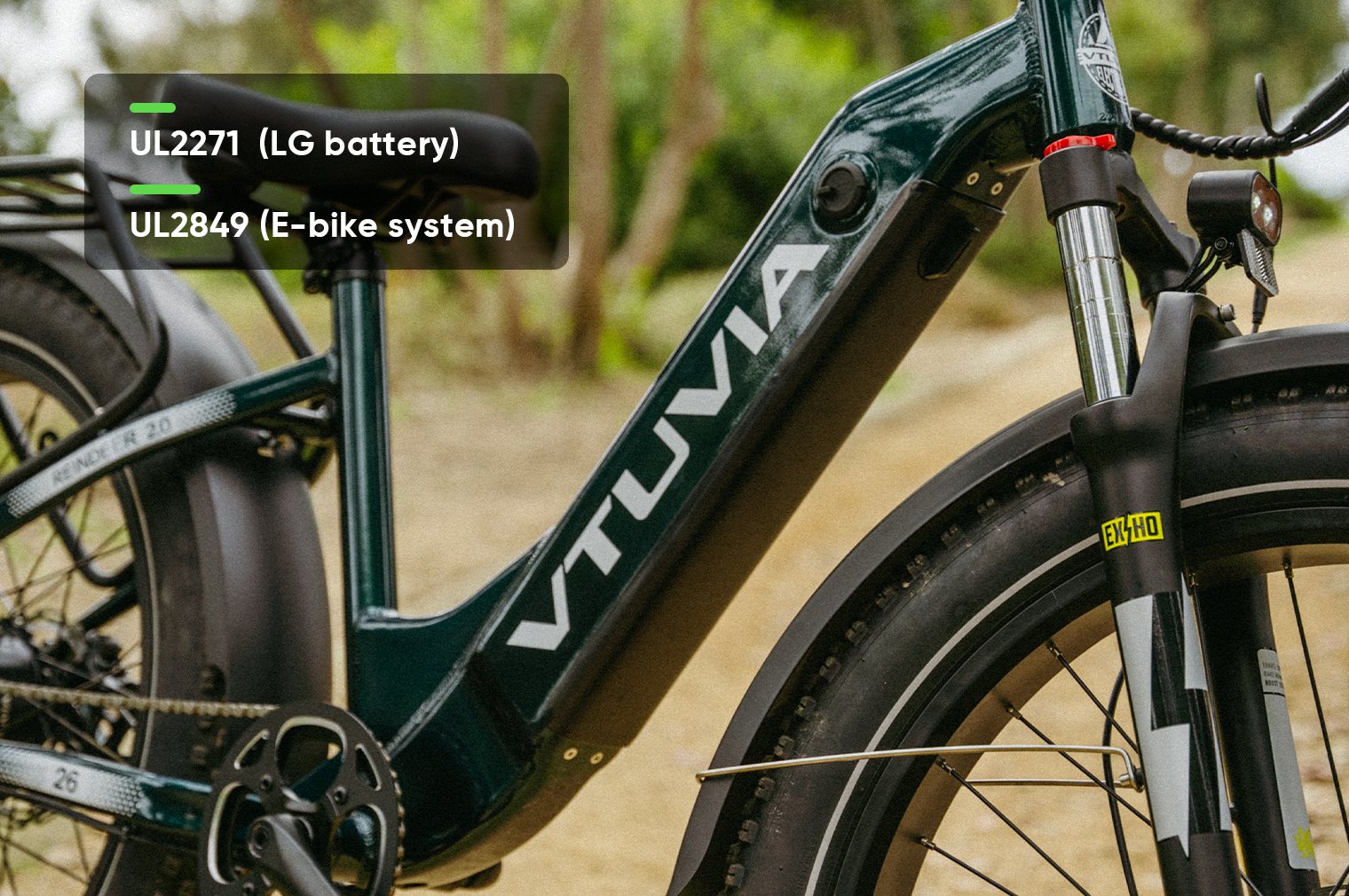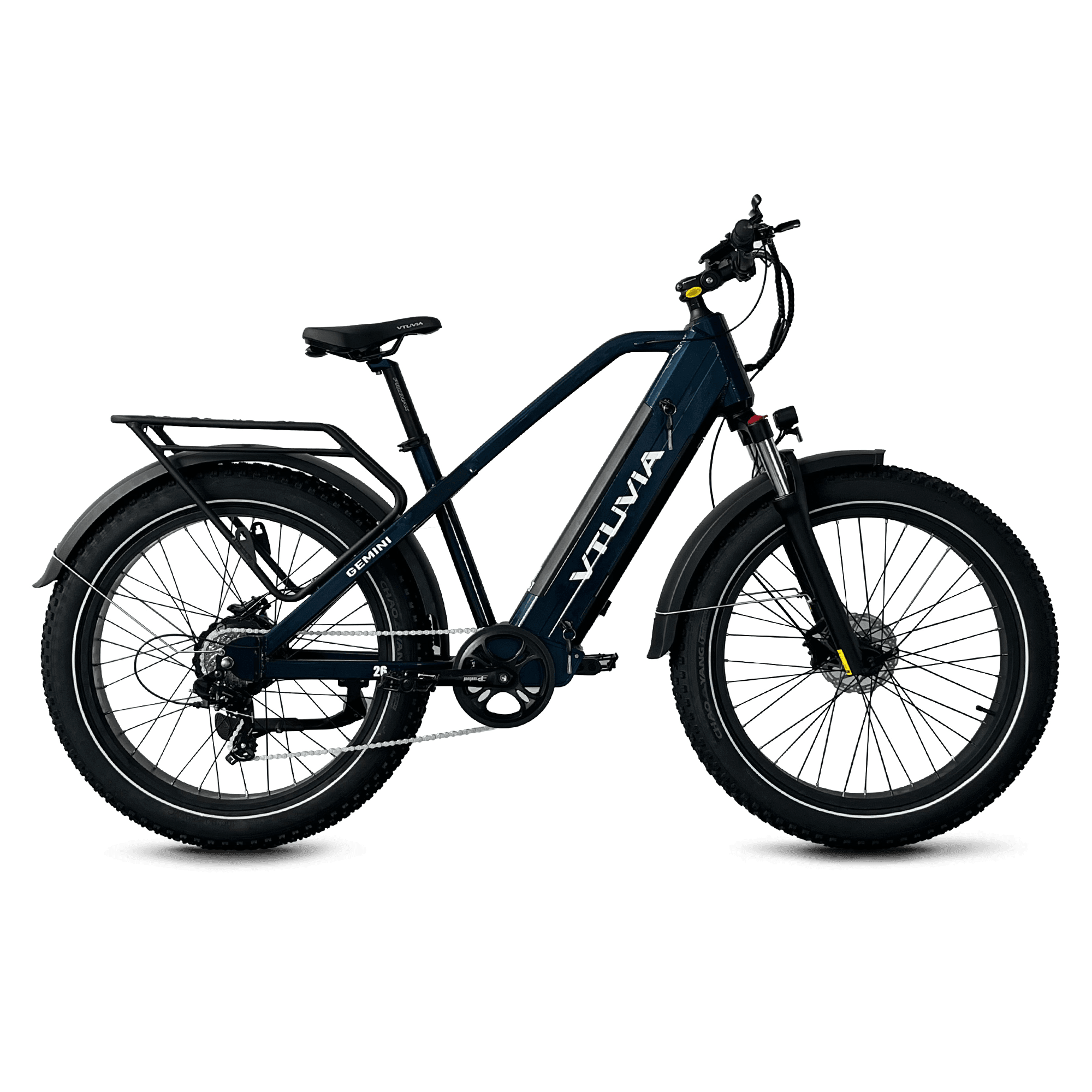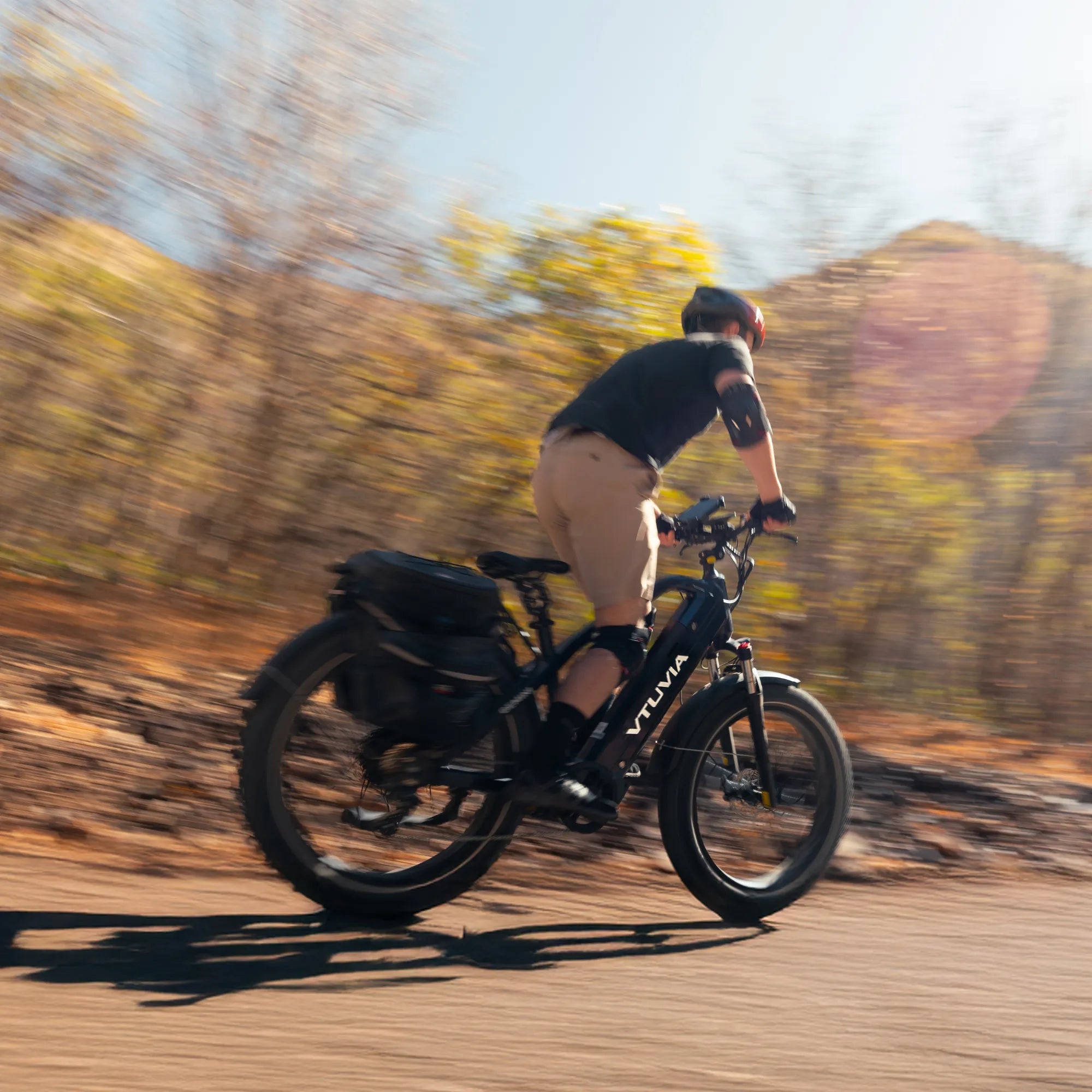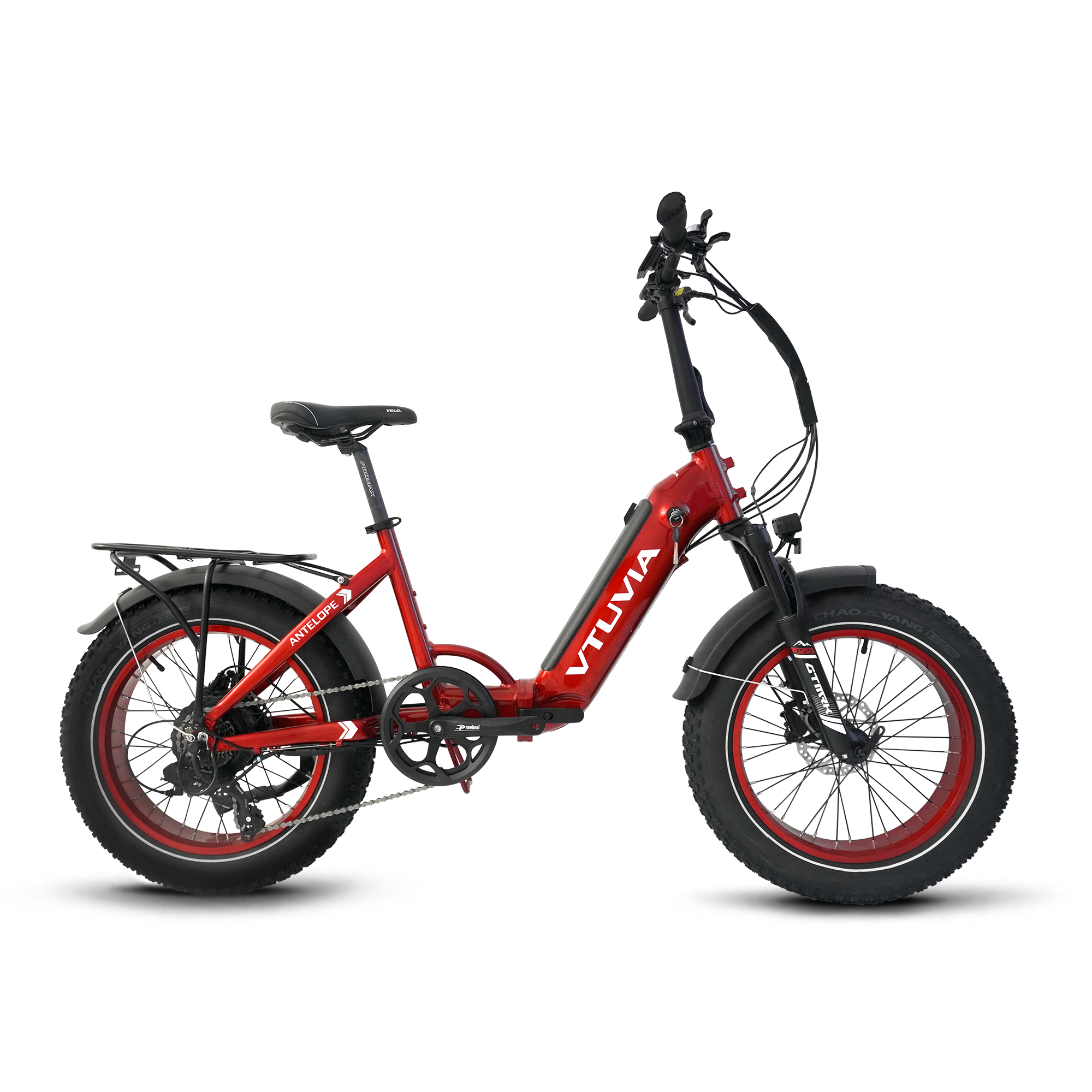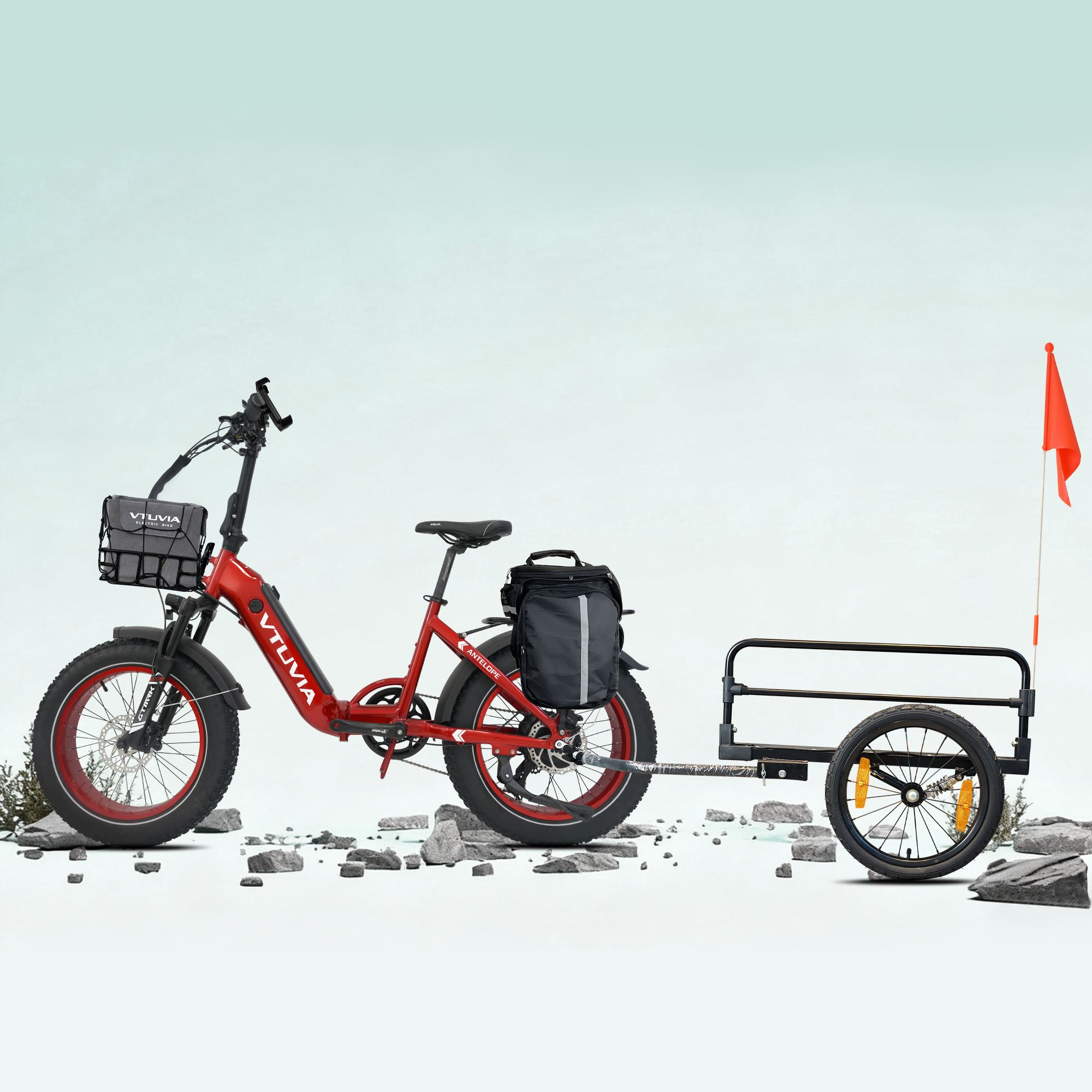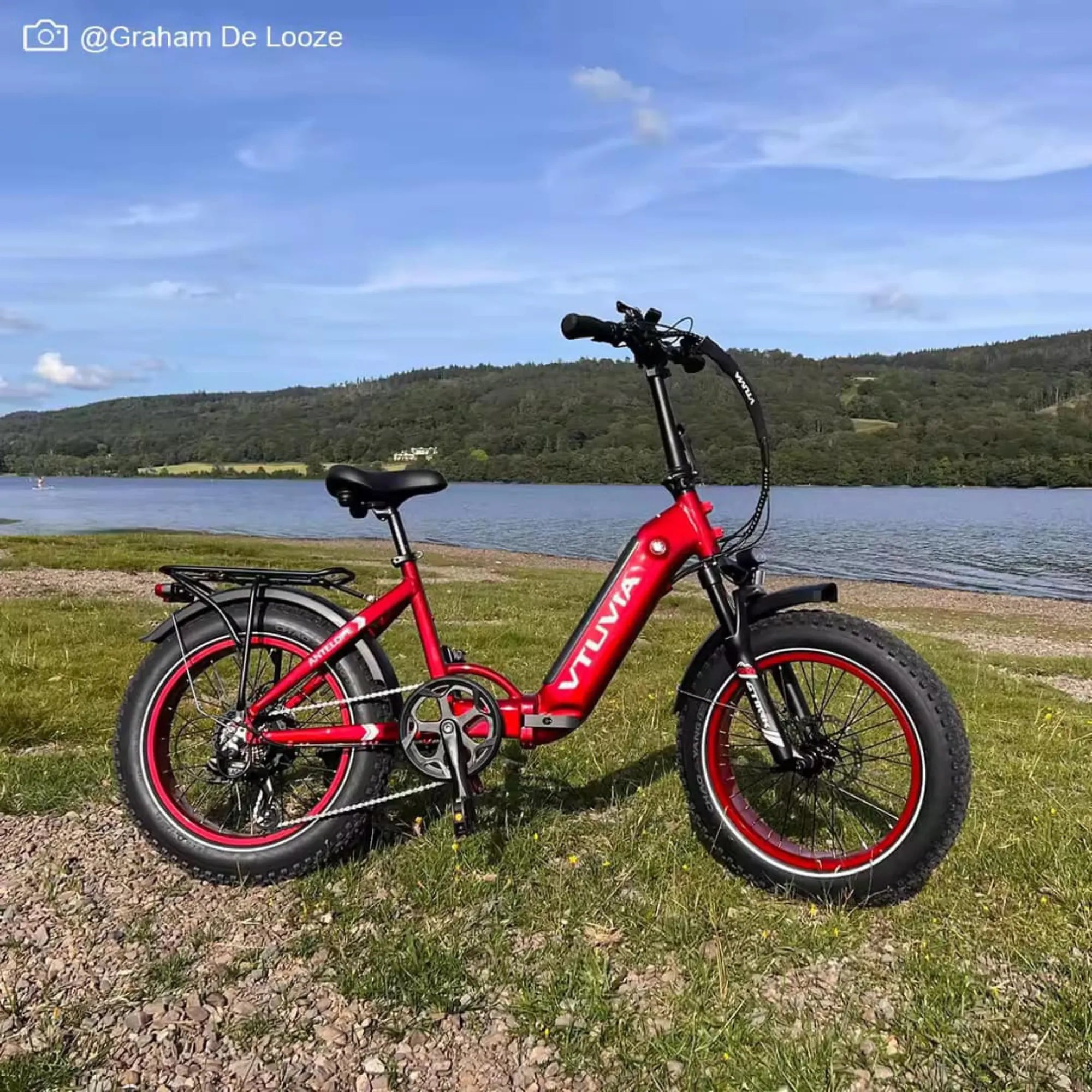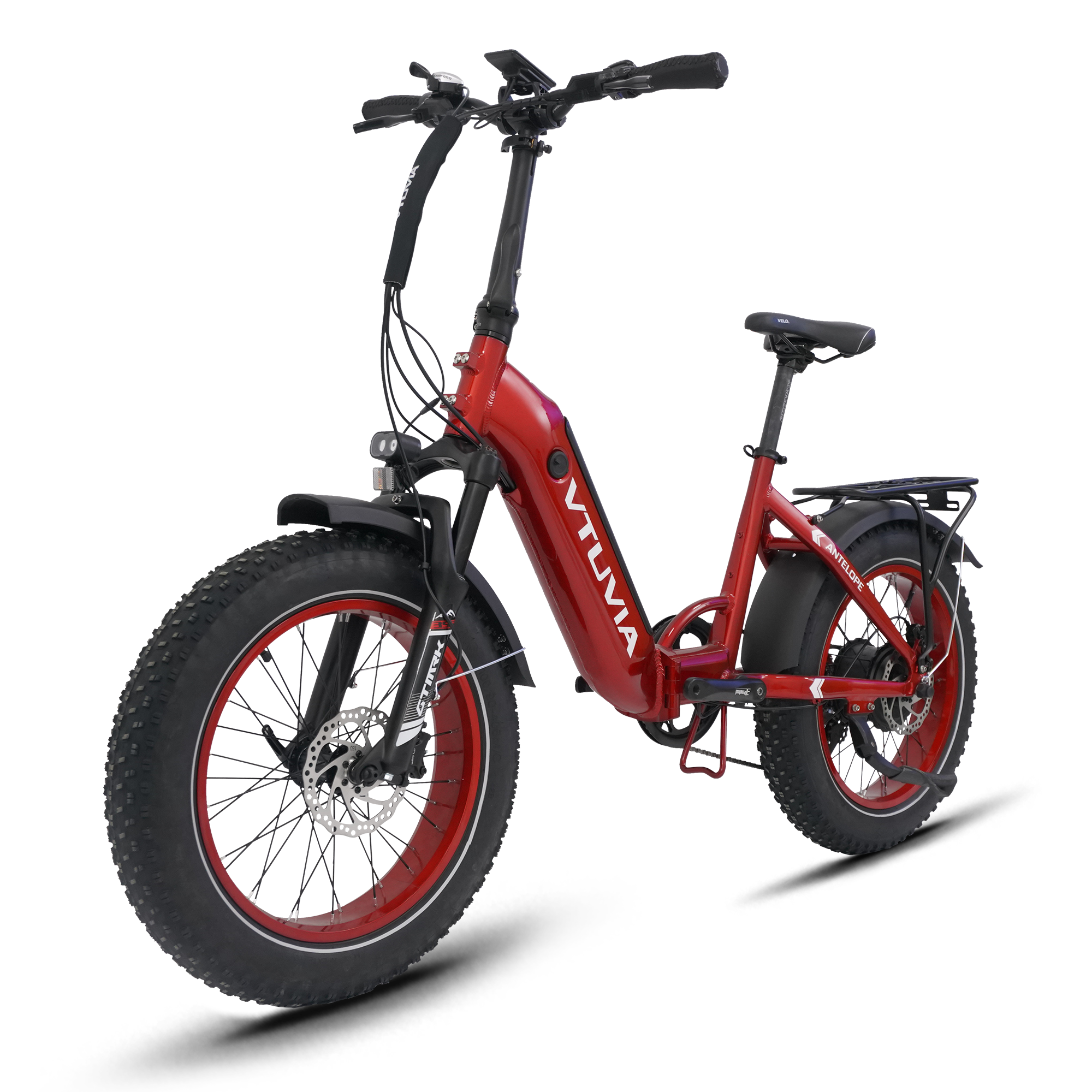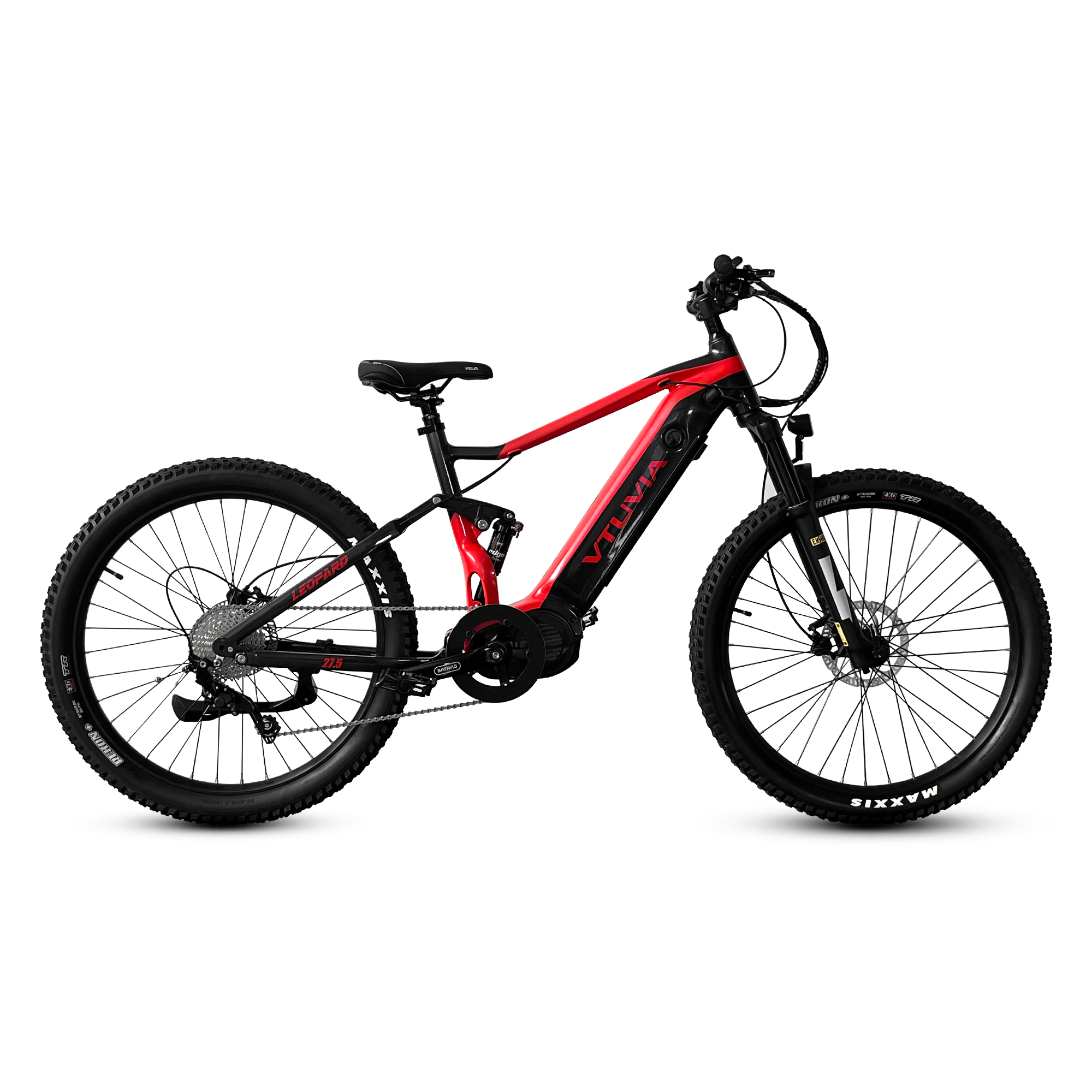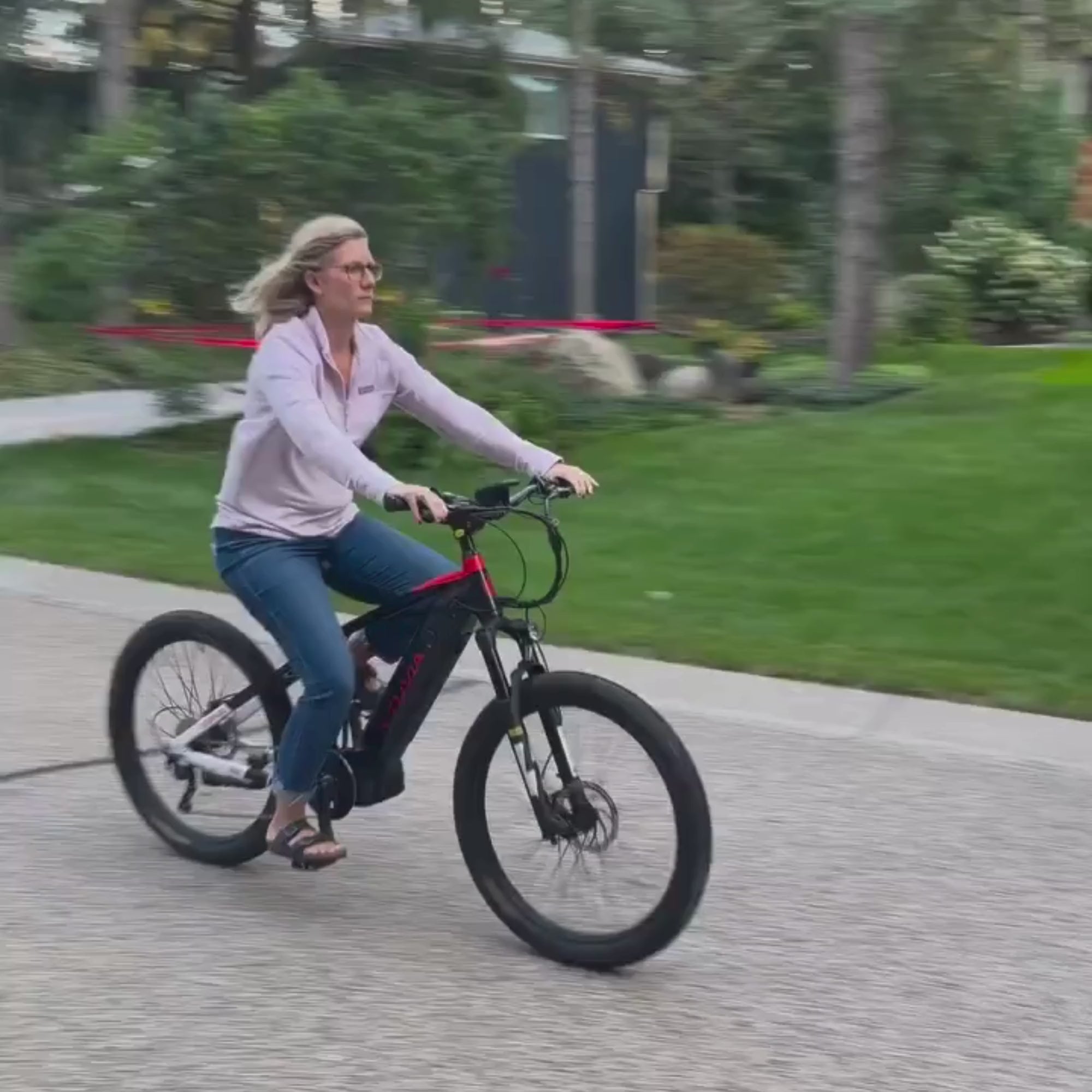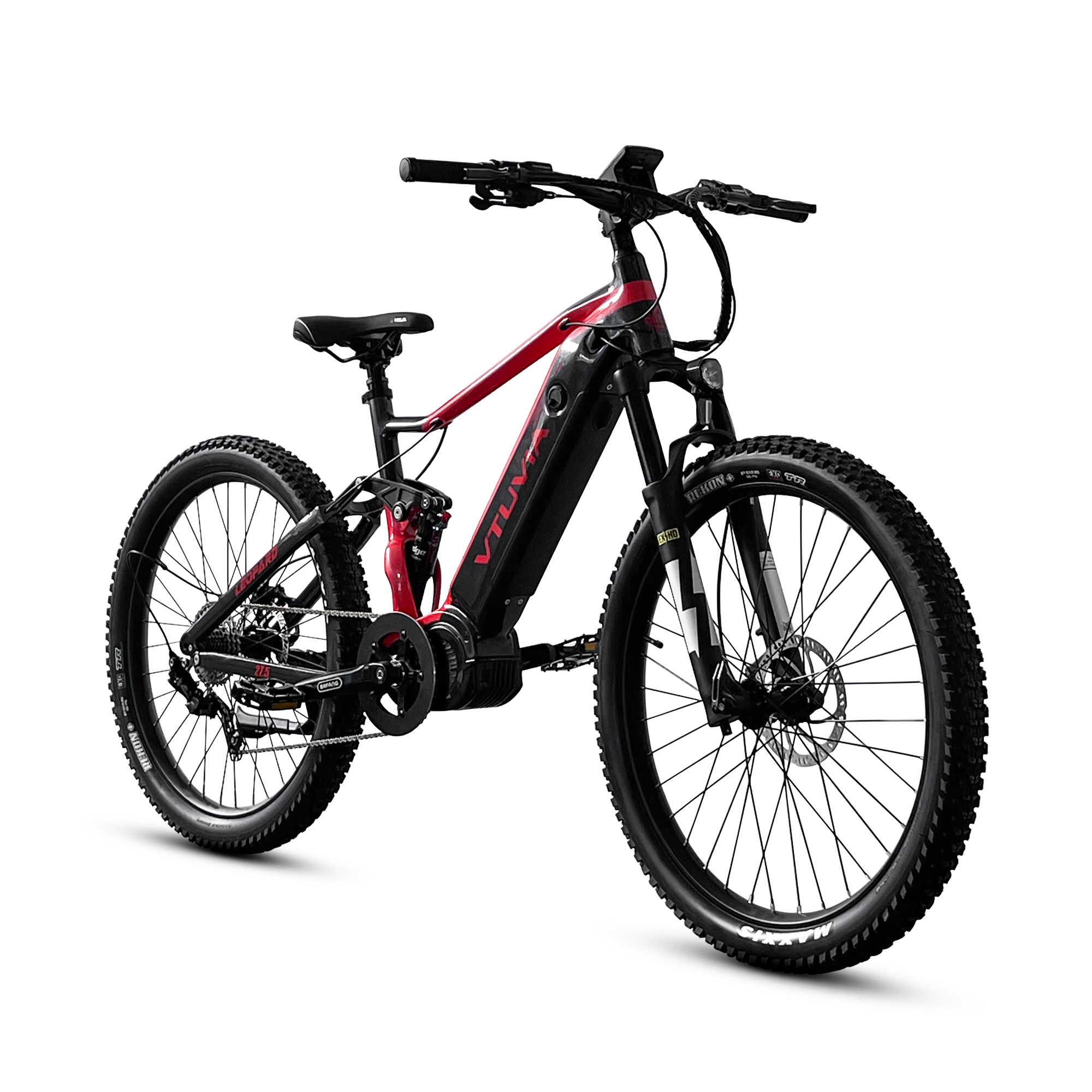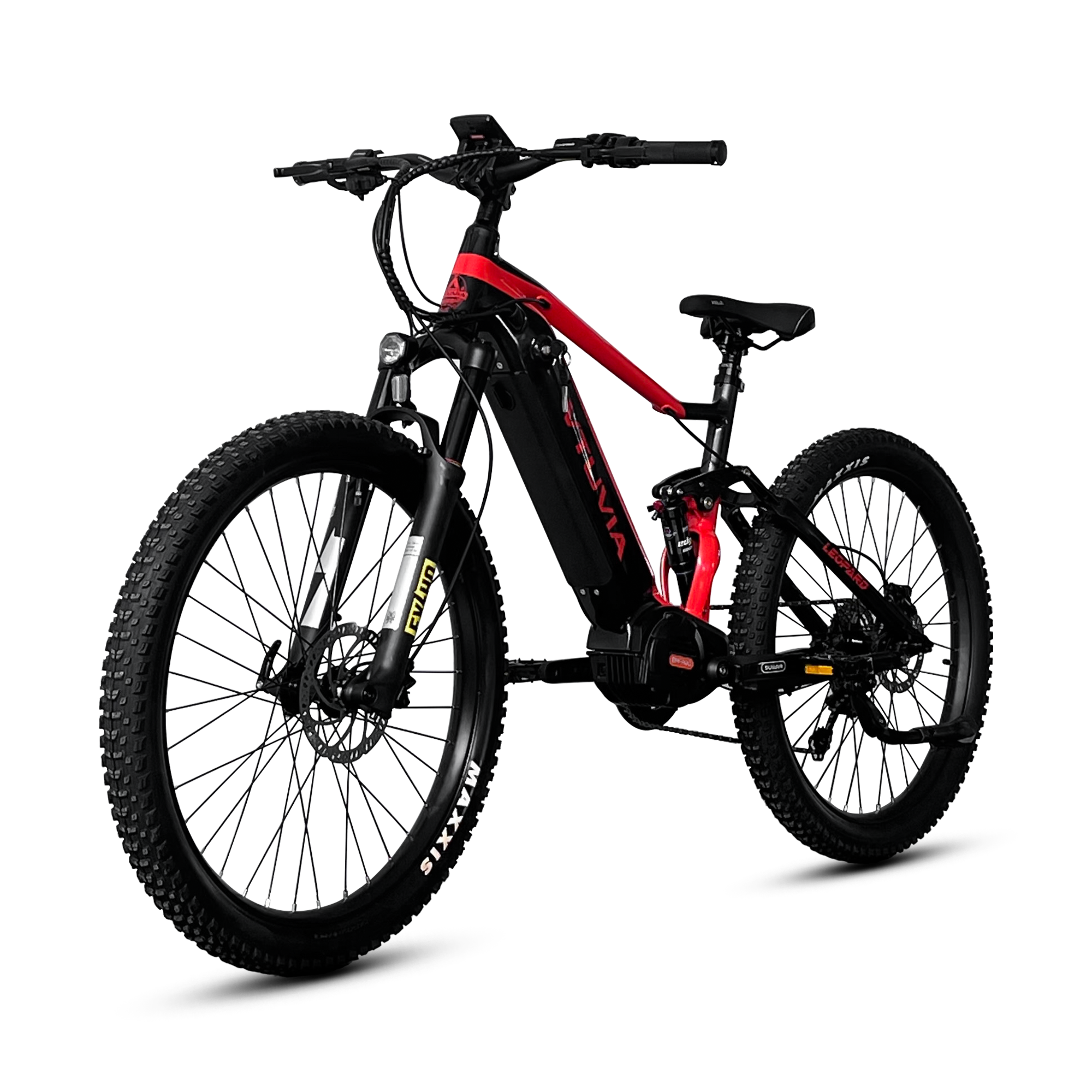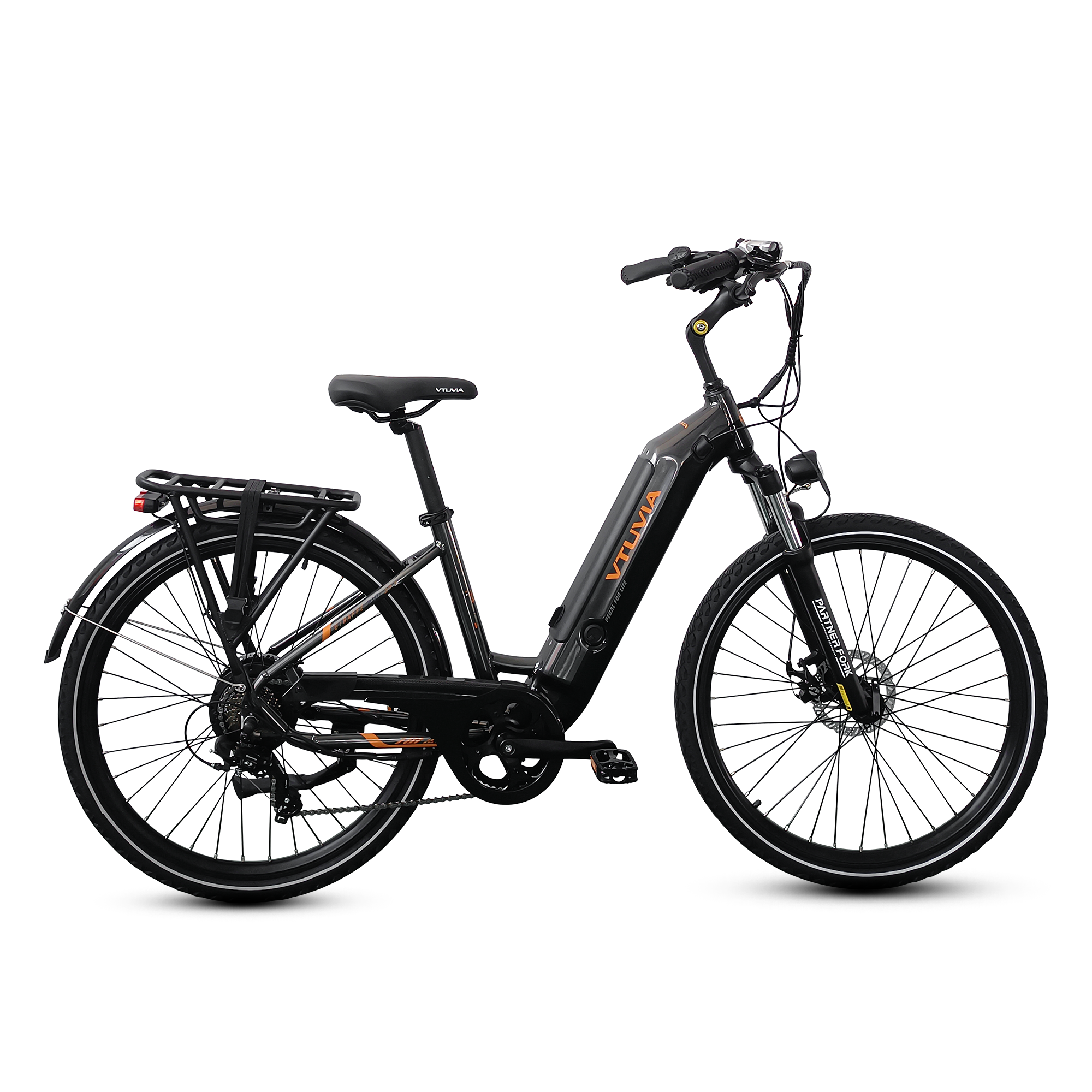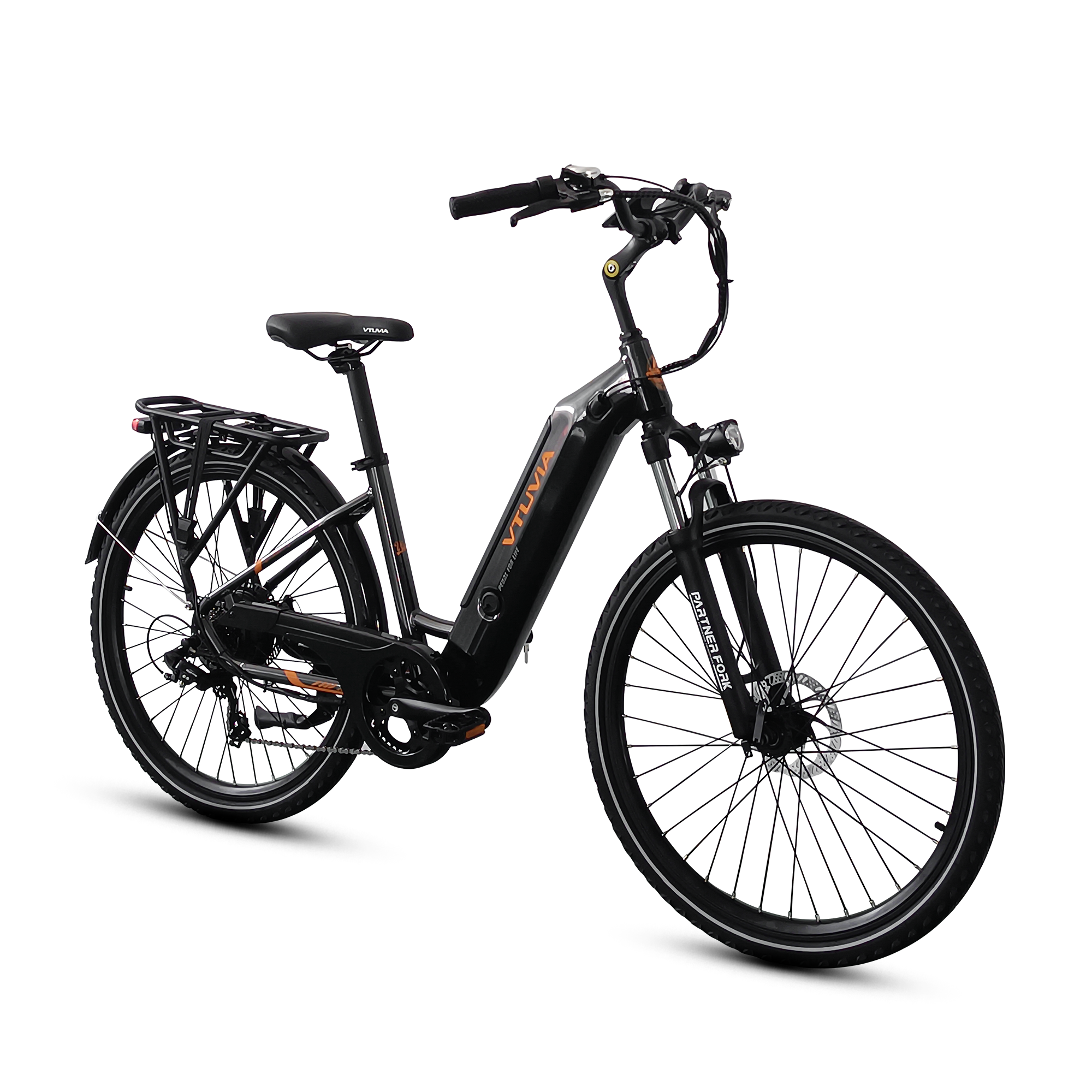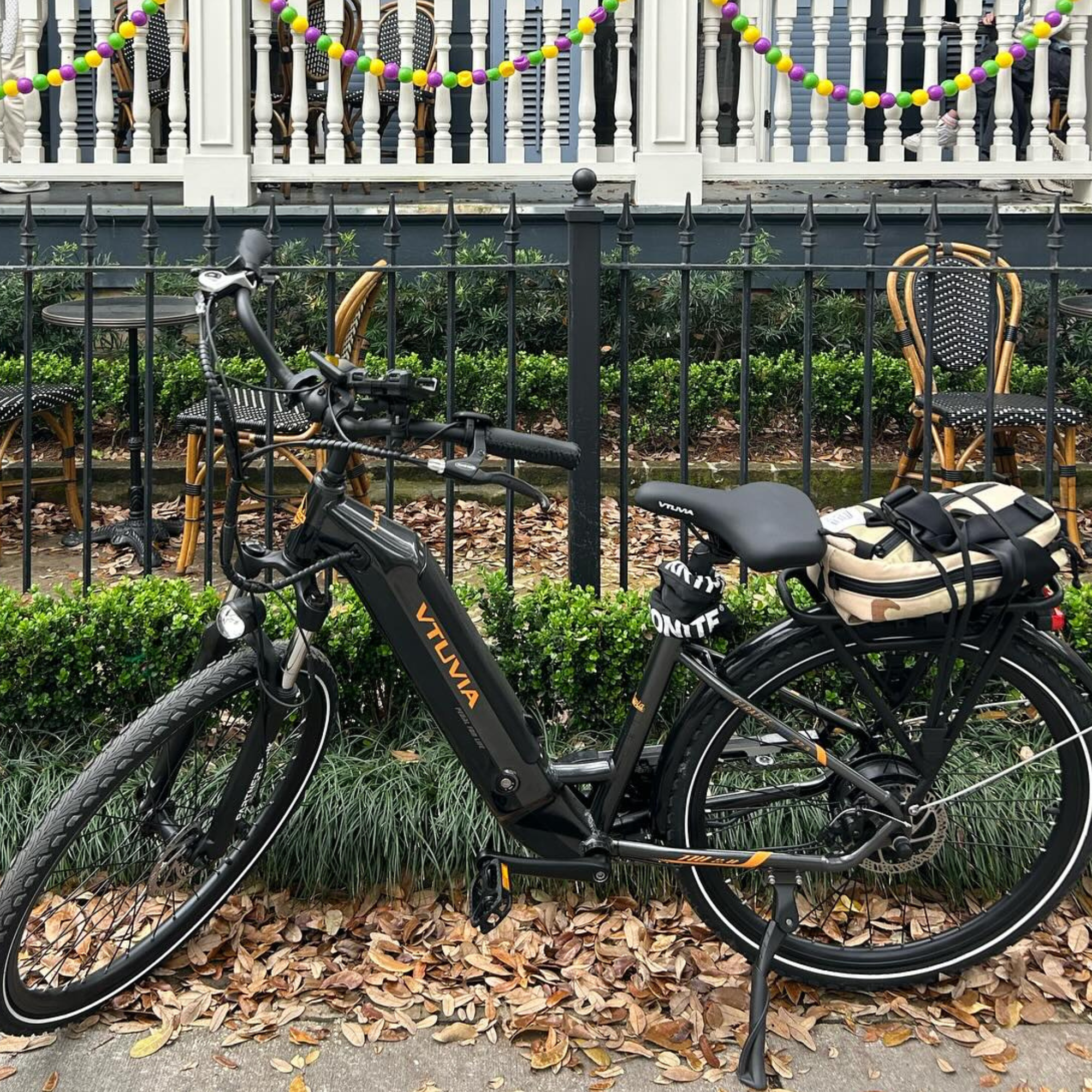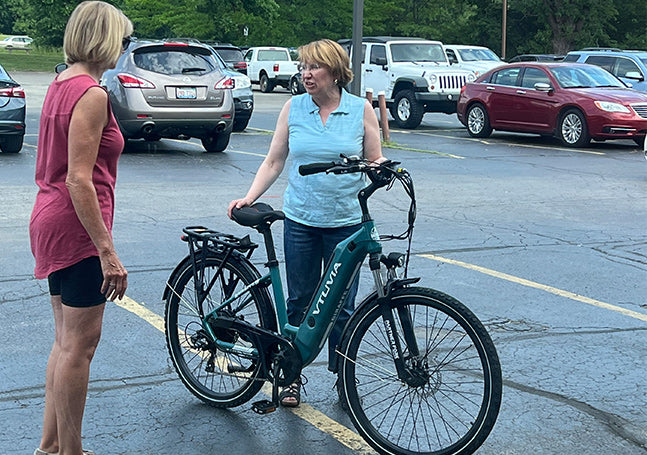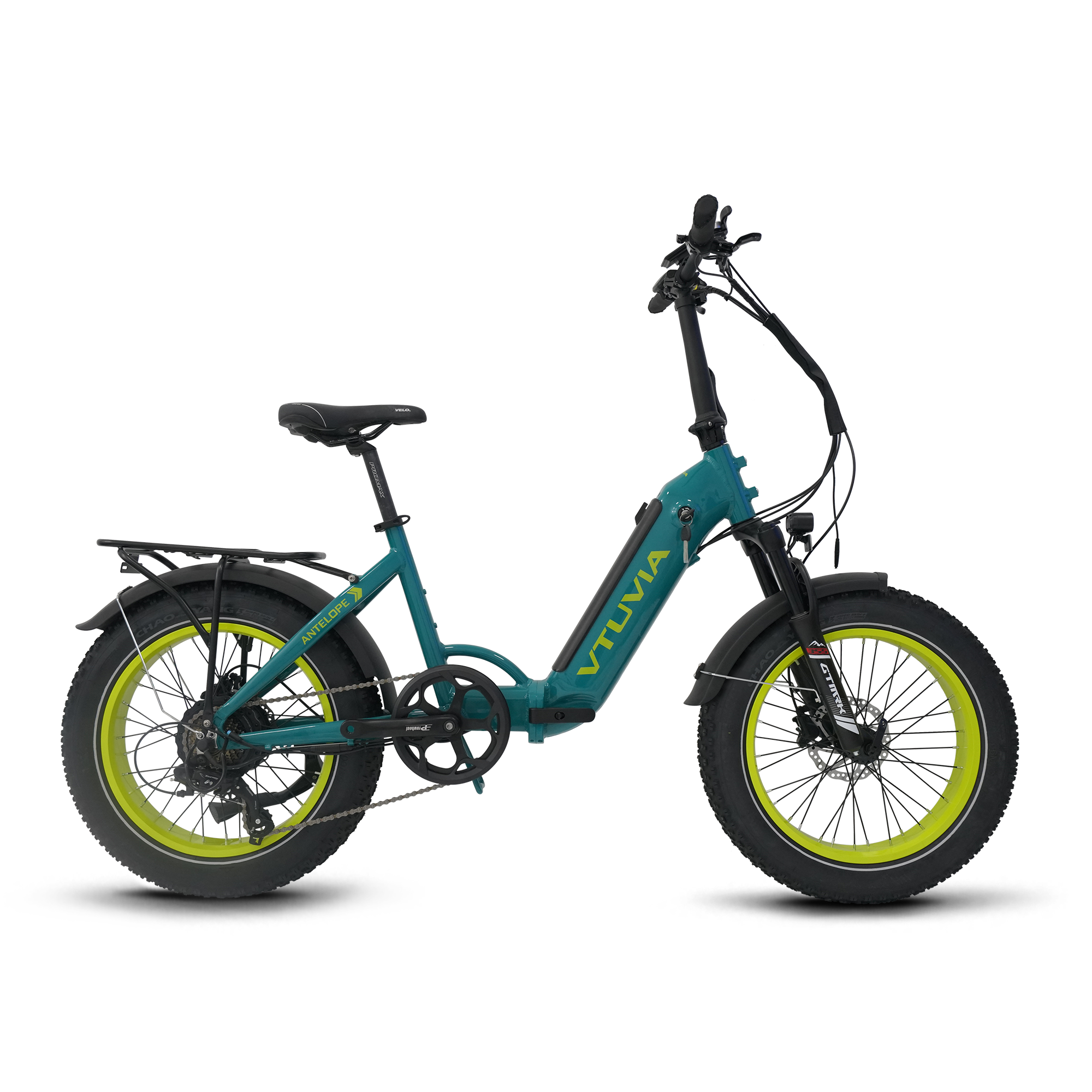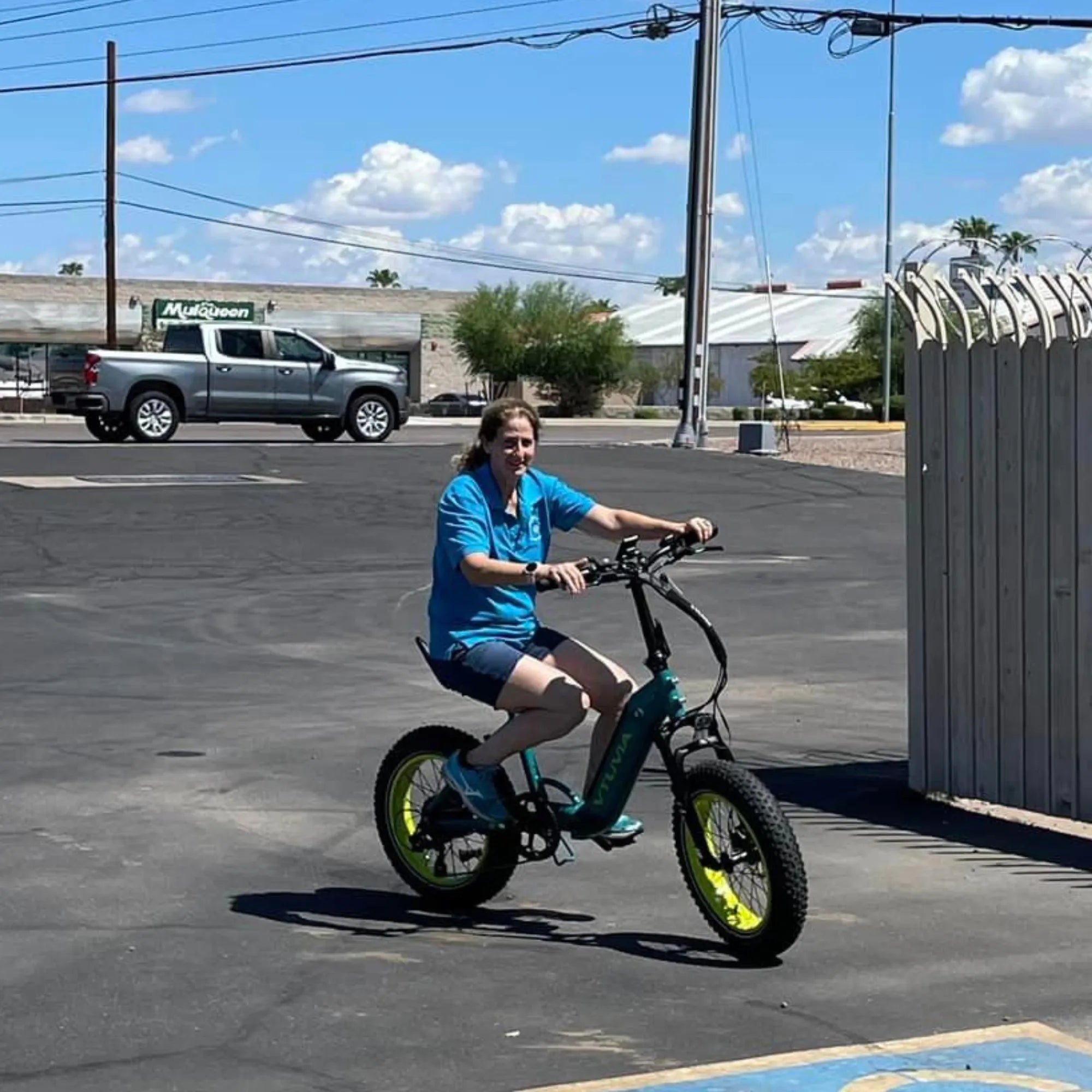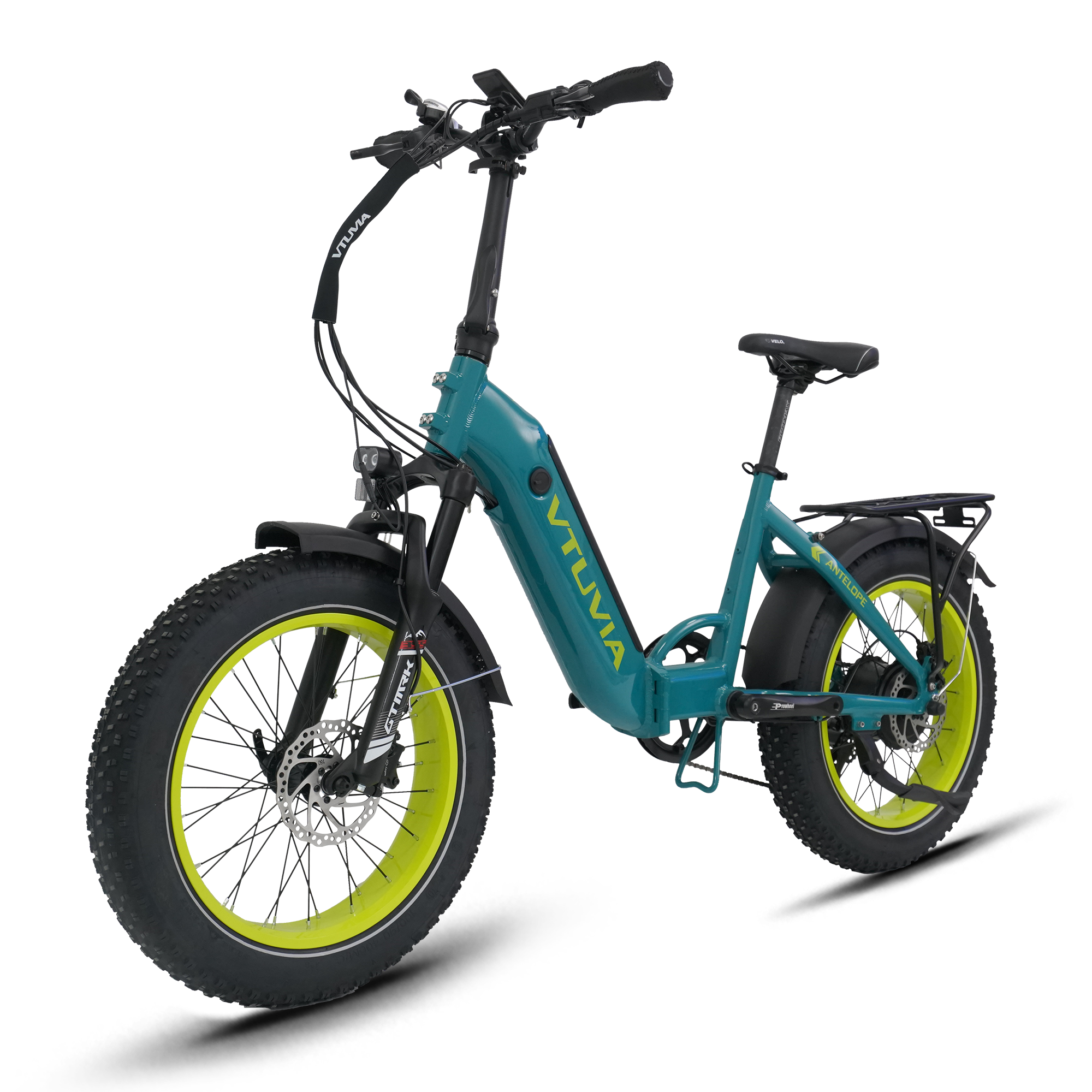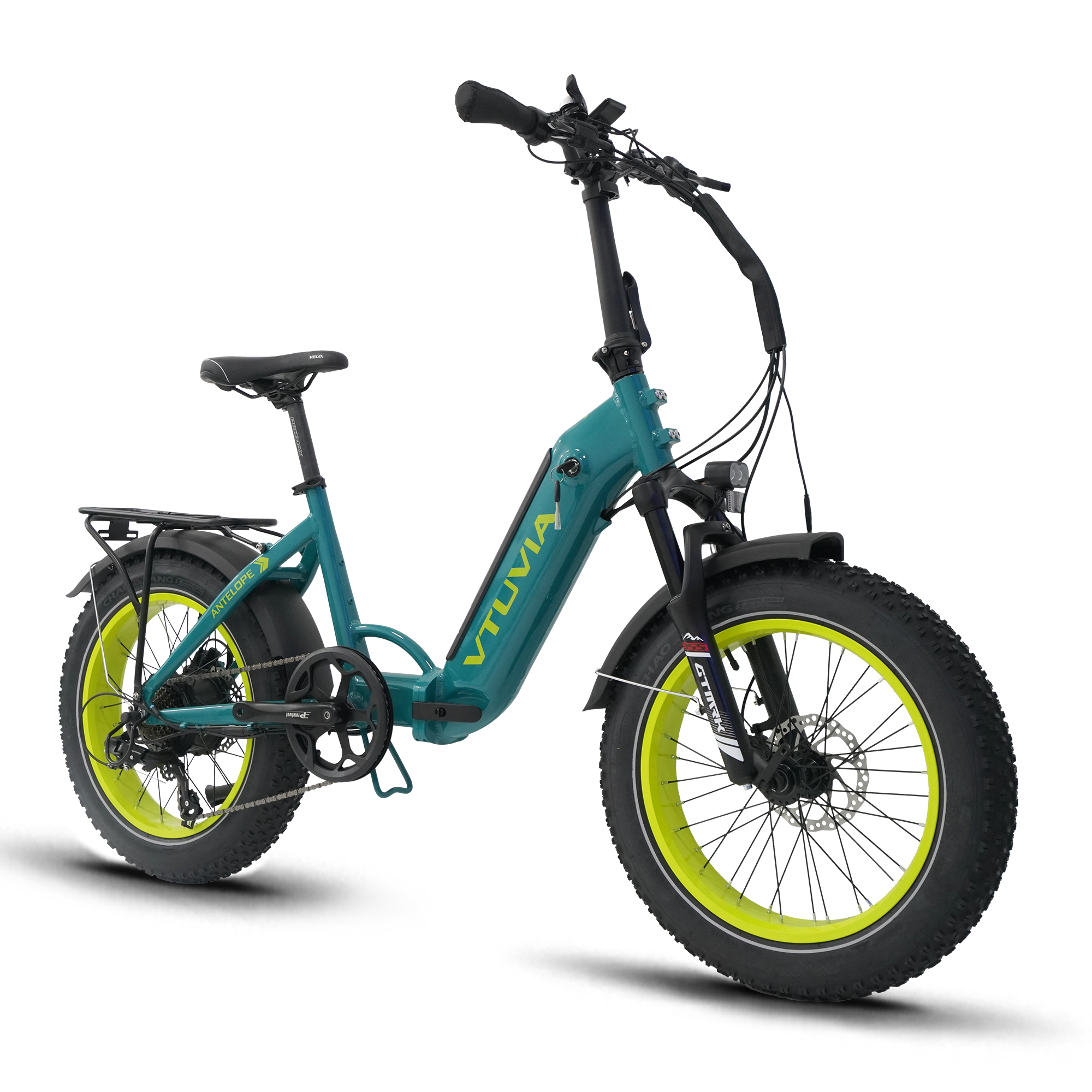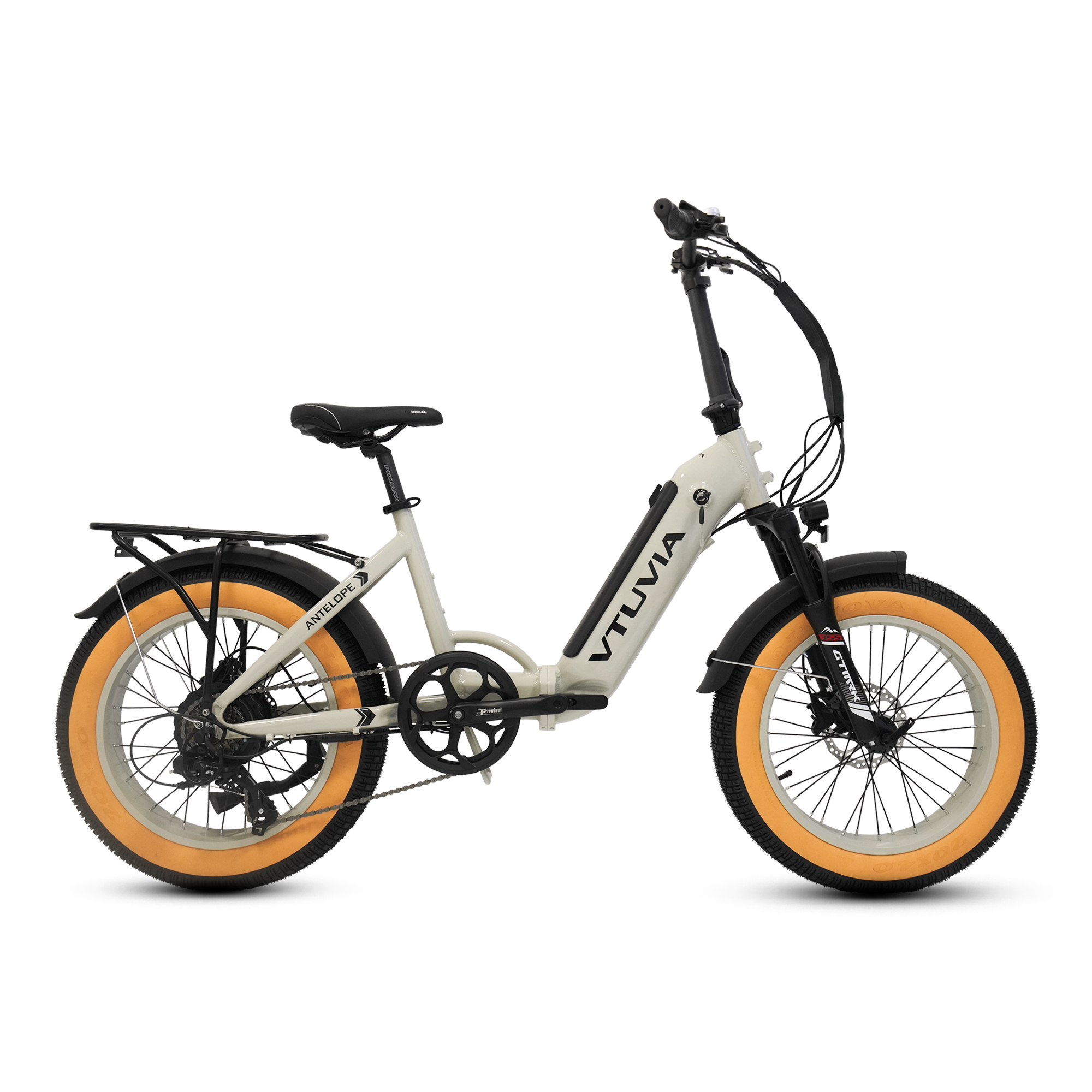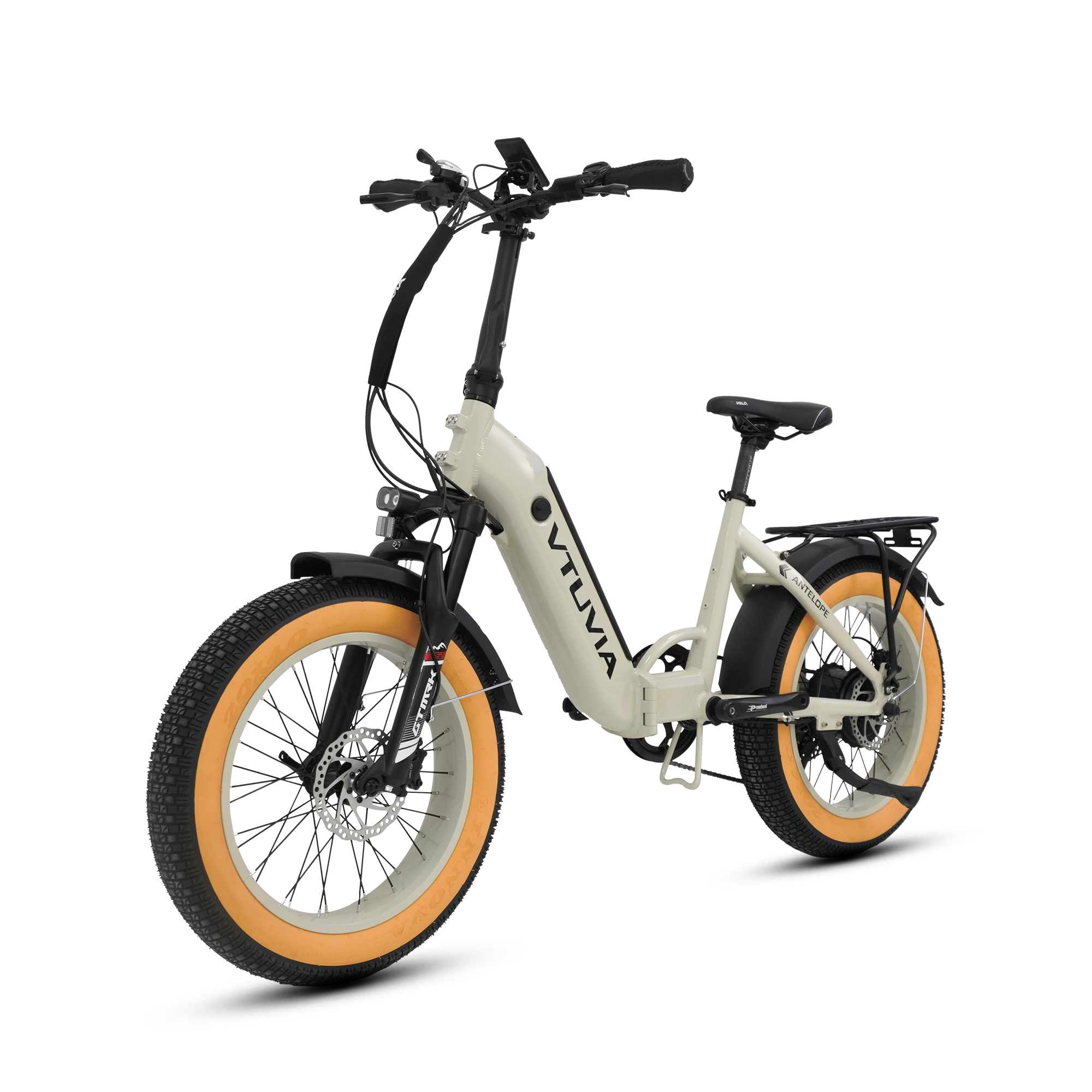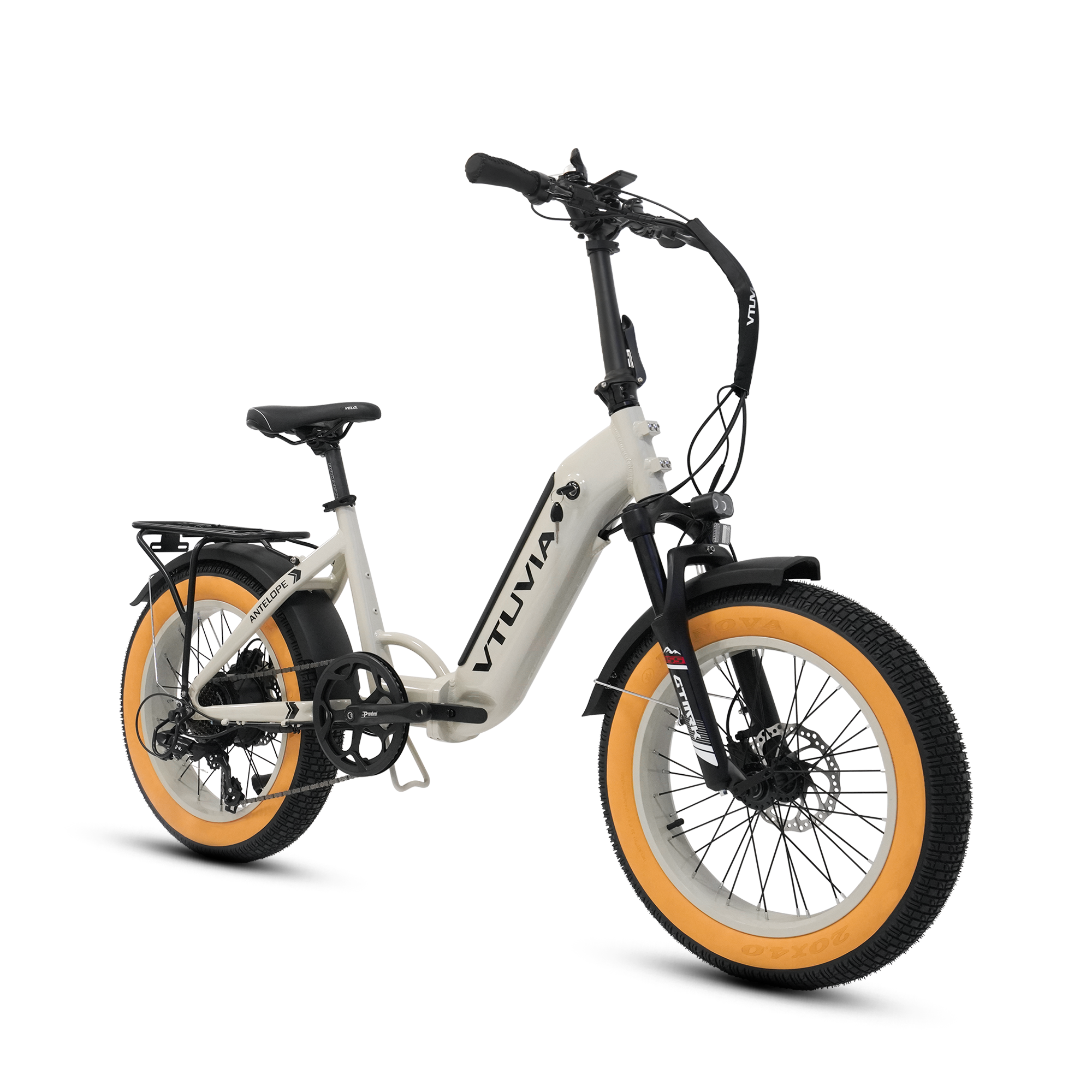Why Choose VTUVIA Electric City Bike?
Riding an electric city bike is one of the smartest ways to navigate modern urban life. Unlike cars or public transit, city e-bikes combine efficiency, eco-friendliness, and fun. VTUVIA designs its commuter-focused bikes to help riders beat traffic, save money, and enjoy smooth daily rides. Whether you’re commuting to work, running errands, or exploring downtown, a VTUVIA electric city bike is built for comfort and reliability.
Best VTUVIA Electric City Models (2025)
Zeal XT8 – Step-Thru Electric City Bike with 750W Motor & Next-Gen Torque Sensor
The VTUVIA XT8 is powered by a 750W rear hub motor paired with VTUVIA’s new-generation torque sensor system. This combination ensures exceptionally smooth pedal response, while delivering maximum power on demand. Riders can enjoy effortless acceleration, stable handling, and the confidence to tackle urban hills and bridges with ease. With its step-thru design, the XT8 blends accessibility, comfort, and strong performance—ideal for daily commutes and long city rides.
Zeal LT7 – Affordable Electric City Bike with 500W Motor & Torque Sensor
The VTUVIA LT7 is the best value torque sensor city e-bike. Equipped with a 500W rear hub motor and the same advanced torque sensing technology as the XT8, the LT7 provides a responsive, natural pedaling experience while staying lightweight and easy to handle. Designed for urban commuters, the LT7 delivers smooth acceleration and efficient power at an affordable price point, making it a smart choice for city riders who want comfort without overspending.
CMB – Mid-Drive Electric City Bike for Smooth Urban Travel
The CMB features a 500W mid-drive motor with torque sensor, giving riders a natural pedaling experience on city streets. With its step-through design, adjustable handlebars, and long-range battery, it’s the best electric commuter bike for those seeking comfort, performance, and smooth acceleration.
Compare VTUVIA Electric Commuter Bikes
Celo XT8 $1,299.00 | Celo XT8 $1,799.00 | CMB Mid-Drive EbikeDesde $2,049.00 | ||
|---|---|---|---|---|
| Performance | ||||
Range |
|
|
|
|
Speed |
|
|
|
|
Shift Lever |
|
|
|
|
Pedal Assist |
|
|
|
|
Terrain |
|
|
|
|
| E-system & Drivetrain | ||||
Motor |
|
|
|
|
Torque |
|
|
|
|
Sensor |
|
|
|
|
Battery |
|
|
|
|
Charging Time |
|
|
|
|
| Frameset | ||||
Frame |
|
|
|
|
Frame Style |
|
|
|
|
Seat |
|
|
|
|
Foldable |
|
|
|
|
Display |
|
|
|
|
Brakes |
|
|
|
|
Brake Rotors |
|
|
|
|
Suspension |
|
|
|
|
Tires |
|
|
|
|
Lights |
|
|
|
|
Fenders |
|
|
|
|
Rear Rack |
|
|
|
|
| Weight & Dimensions | ||||
Net Weight( Include rear rack & fenders) |
|
|
|
|
Total Paypoad Capacity |
|
|
|
|
Rider Height |
|
|
|
|
Standover Height |
|
|
|
|
Minimum Seat To Floor |
|
|
|
|
Electric City Bike FAQ
Commuting in the city has never been easier thanks to electric city bikes. With options like step-through frames, torque sensor systems, foldable designs, fat tires, and cargo racks, VTUVIA e-bikes make city life faster, safer, and more enjoyable. Here are 20 FAQs to help you choose the perfect model.
What is the best step-through electric city bike?
The CMB is the top step-through electric city bike, featuring:
- Low step-over height (16.9”) for easy mounting
- 48V 15Ah battery with up to 52 miles range
- Pedal-assist and throttle modes for urban hills
- Perfect for seniors or anyone prioritizing accessibility and comfort.
What is the best foldable electric city bike?
The SF20H is the best foldable city e-bike for urban commuters:
- 750W motor for smooth power
- 20” wheels for compact folding
- Quick-fold frame for storage or public transport
- Ideal for apartment dwellers or anyone needing easy portability.
What is the best torque sensor city bike?
VTUVIA torque sensor city bikes like the XT8 (750W) and LT7 (500W) provide:
- Smooth pedal-assist response
- Effortless hill climbing
- Natural riding feel
- The XT8 is perfect for steeper urban terrain, while the LT7 is the most affordable torque sensor city bike
Do electric commuter bikes save money?
Yes! You save on fuel, parking fees, and public transport. Over time, the cost of your e-bike can be recouped through these savings.
Are commuter e-bikes legal to ride in the city?
Yes, commuter e-bikes are generally legal to ride in most cities, but the regulations can vary depending on your location. Many cities have specific laws regarding speed limits, age restrictions, and where you can ride e-bikes. It's important to familiarize yourself with the local laws to ensure you're complying with any rules related to e-bike usage, such as requiring a helmet or only riding on certain bike lanes.
How fast can commuter e-bikes go?
Most commuter e-bikes are classified as Class 2 e-bikes, meaning they have a maximum speed of 20 mph (32 km/h) when using the motor. Some e-bikes may allow you to go faster when pedaling manually, but the motor will generally cut off at this speed to comply with regulations. It's important to verify the speed limitations of the specific model you are interested in, especially if you plan on riding in areas with speed limits for e-bikes.
Does VTUVIA electric bikes have UL certification?
Yes, most of our VTUVIA electric bikes are UL-certified, ensuring they meet strict safety standards for both the bike and the battery. A few models are still in the certification process, but we expect them to achieve UL certification soon.





